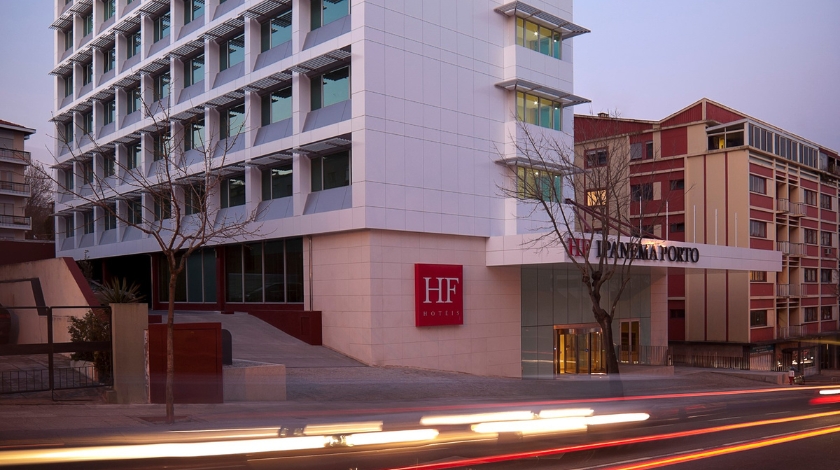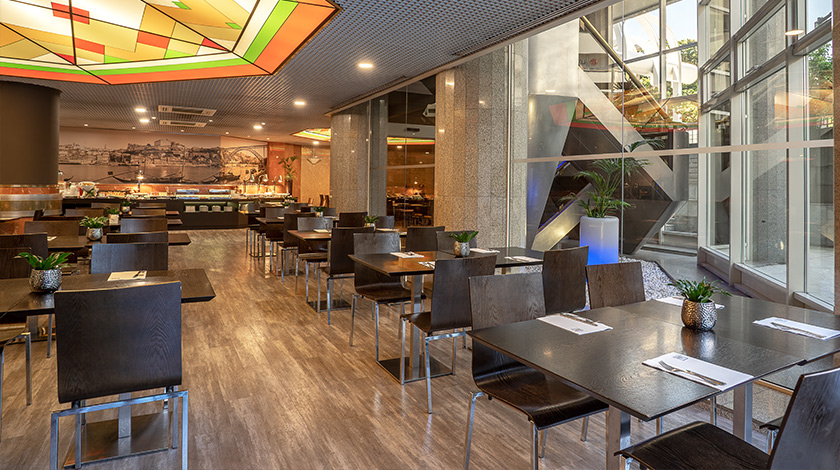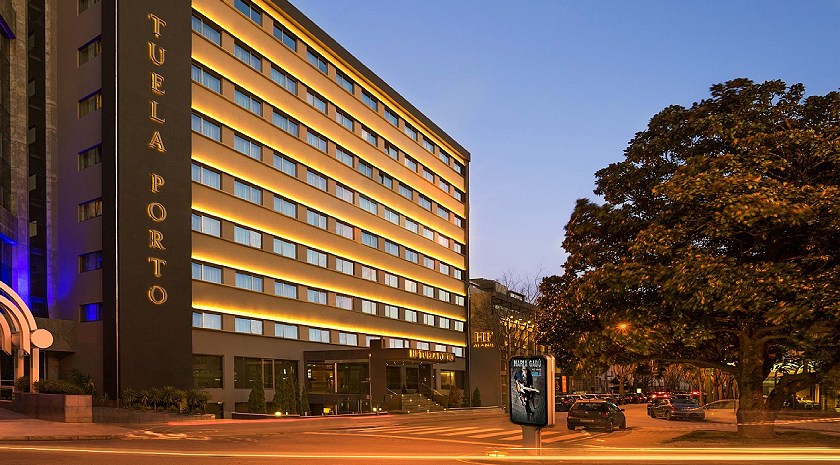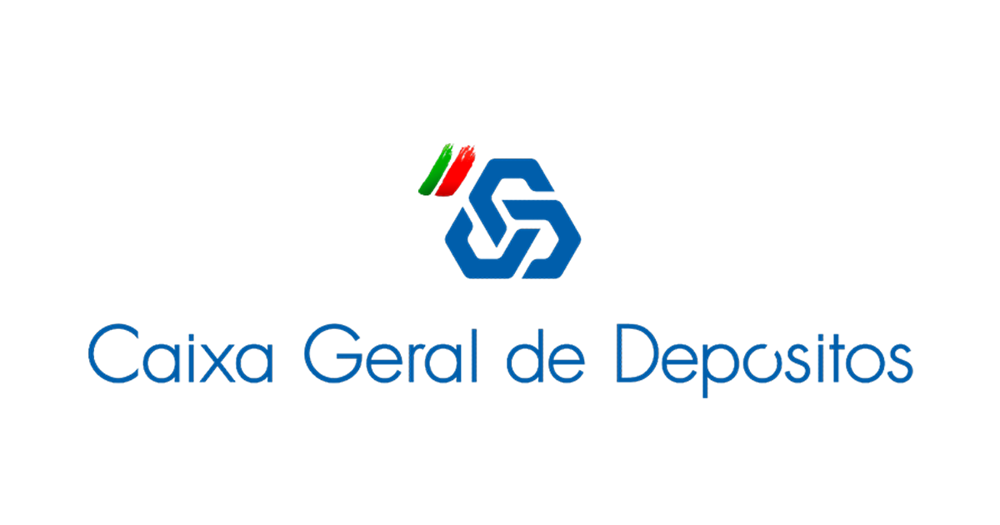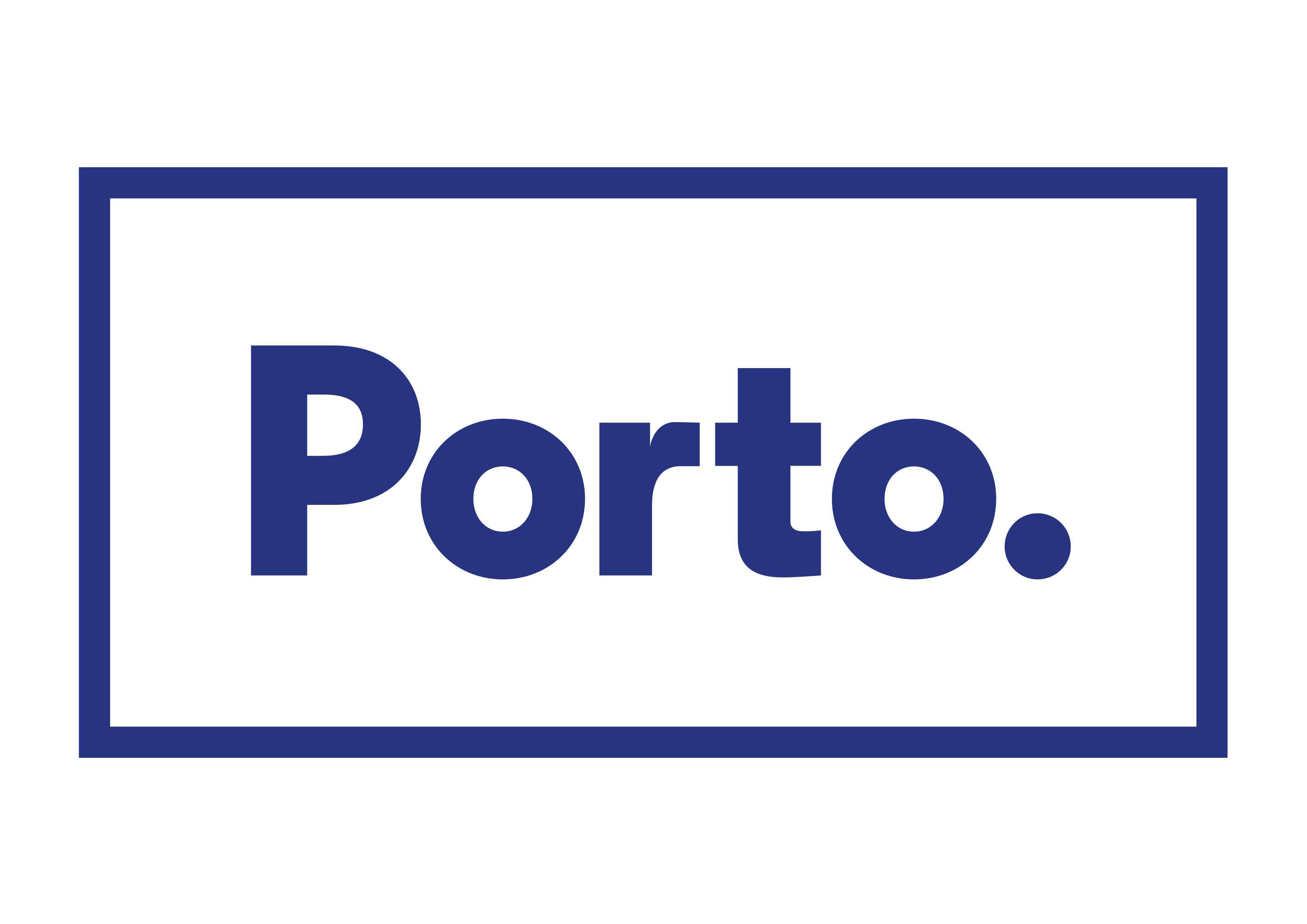ABOUT
The
INVICTA will guide you through an unforgettable journey into the development of intelligent systems, where innovation meets tradition in the captivating city of Porto.
What is our mission?
INVICTA aims to become an European reference in state-of-the-art artificial intelligence, computer vision and pattern analysis topics by promoting knowledge and sharing of experiences while building a global community from Porto, Portugal to the World.
What can you expect?
- Interactive lectures
- Hands-on workshops
- Debates
All led by distinguished experts and practitioners from academia and industry.
This is the perfect experience whether you're a budding enthusiast eager to grasp the fundamentals or a seasoned professional aiming to refine your expertise. This school promises to equip you with the skills and insights needed to thrive in the rapidly evolving landscape of artificial intelligence technologies.
INVICTA 2024 was a very interesting experience that I would recommend to anyone studying in the
field of
computer vision! I had the opportunity to learn more about CV, enhancing my knowledge not only
in
biometrics, which interests me the most, but also in fields I had no previous knowledge of.
In particular, the division of the theoretical and practical classes was very useful, as we got
to test
the knowledge we had gained with simple examples. I can also recommend the school for its
friendly
environment that facilitates the discussion and exchange of ideas between all the attendants.
You can expect to see me again at INVICTA 2025!
Eduarda Caldeira - 1st Edition Participant

My experience as a speaker at the INVICTA Spring School was truly inspiring.
The organising committee was extremely welcoming and supportive, making me feel
right at home in beautiful Porto. It was a pleasure to interact with a diverse group
of participants who asked clever questions and sparked fascinating discussions.
The thoughtfully organised sessions, coupled with the wonderful social events and delicious
lunches, were the cherry on top of an already outstanding experience!
INVICTA is a fantastic platform for sharing knowledge and diving into
cutting-edge topics in AI — both as a participant and as a speaker.
Anna Hedström - 1st Edition Speaker

It was a very enjoyable experience and really well-organised, the people were extremely friendly and nice also. It was a pleasure to attend and network and meet the people at the event. Many thanks to the people who organized INVICTA!
1st Edition Participant

Being part of the Organising Committee of the INVICTA Spring School 2024 was one of the best parts of my PhD journey. This experience allowed me to work with different colleagues, share different experiences, and create a common vision and mission for a School that aims to be an inclusive environment where people can learn about AI. During the week, I had the chance to meet participants with different backgrounds and engage in scientific discussions with our distinguished speakers. If you are passionate about AI, INVICTA is the place to be and where you will grow!
Tiago Gonçalves - 1st Edition Organiser

For me, INVICTA was a truly stimulating experience, combining theoretical exploration with hands-on applications. The program's blend of academic and industry perspectives provided a comprehensive view of machine learning and its real-world applications."
Rafael Mamede - 1st Edition Participant

Applications
How can I apply?
Applications are now open! Don't miss this opportunity!
You can apply using
the following form:
INVICTA School 2025
| Application Form.
Applications are accepted on "a rolling basis". If your application is accepted, you will be contacted and have the opportunity to register for INVICTA School 2025.
Registrations
I'm in! How do I register?
If your application has been accepted, we'll contact you with instructions.
Keep in mind the following information on fees and deadlines:
| Registration Phase | Start | Deadline | Registration Fee | APRP Fee |
|---|---|---|---|---|
| Early-bird Registrations | January 6, 2025* | February 9, 2025* | €650 | €650 €572 |
| Regular Registrations | February 10, 2025* | March 31, 2025* | €700 | €700 €616 |
* All deadlines are 23:59 WEST (UTC+1)
Can I have a discount?
We provide a 12% discount for APRP members.
What does the registration include?
- All lectures
- Hands-on sessions
- Case study sessions
- Round-table
- AI talks
- Coffee breaks
- Social programme and other events
How can I get a VISA to attend INVICTA?
If you need a visa to travel to Portugal, you need to send us the following information:
- Your full name
- Your e-mail address
- Address to which you would like the acceptance letter to be sent
- Your passport information: number, issue date and place, and expiration date
Send this info to invicta@inesctec.pt with the subject line "Visa letter request". Visas will only be issued after the payment of registration fees is confirmed.
Sessions
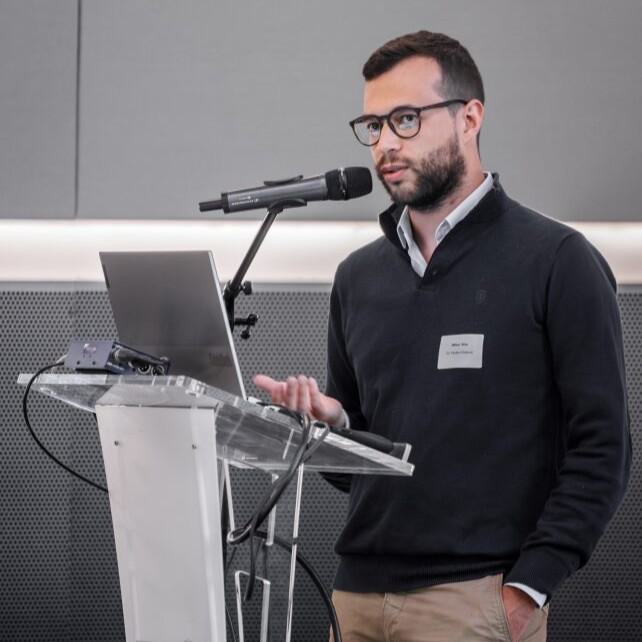
Wilson Silva
Utrecht University, Utrecht, Netherlands
Wilson Silva is an Assistant Professor in the Departments of Information and Computing Sciences and
Biology
at Utrecht University, as well as a Guest AI Researcher in the Department of Radiology at the
Netherlands
Cancer Institute. His research focuses on trustworthy artificial intelligence for life sciences,
with particular emphasis on explainable AI, privacy-preserving machine learning, and enhancing
generalizability
in cancer research.
Before moving to the Netherlands, Wilson completed his PhD at the University of Porto/INESC TEC,
where he conducted research within the Visual Computing and Machine Intelligence group under the
guidance of
Prof. Jaime Cardoso. During his PhD, he also spent time as a visiting researcher in Prof. Mauricio
Reyes’
lab at the University of Bern in Switzerland. Wilson holds a master’s degree in Electrical and
Computer
Engineering from the University of Porto.
Explainable AI in Healthcare: Fundamentals, Challenges, and the Road to Trustworthy AI
TBA
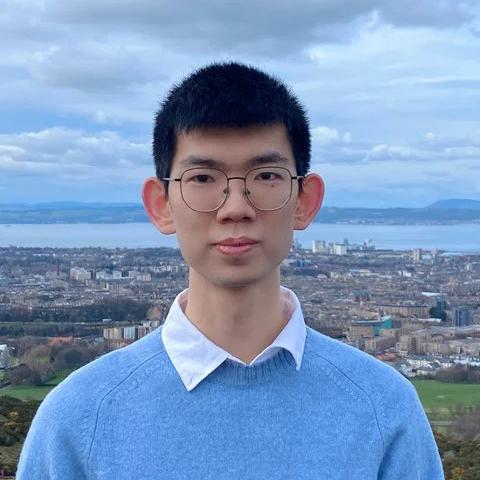
Yongshuo Zong
University of Edinburgh, Edinburgh, Scotland
Yongshuo Zong is a final-year PhD student at the University of Edinburgh where he works with Prof. Timothy Hospedales. His research focus on multimodal learning, especially large vision-language models, with an emphasis on areas such as safety, robustness, in-context learning, and multi-image understanding. He also works in the area of AI for healthcare where he develops MEDFAIR, one of the most popular benchmarks for medical imaging fairness.
Towards stronger and safer vision-language models
Large language models (LLMs) have become integral to daily life, powering numerous applications. Building on the foundation of LLMs, large vision-language models (VLMs) have been developed to seamlessly integrate visual and textual data, enabling advanced multimodal interactions with humans. In this talk, I will first provide an overview of the background of large language models and multimodal learning. I will then introduce key research challenges in advancing LLMs and VLMs, focusing on topics such as in-context learning, multi-image understanding, and long-context processing. Finally, I will discuss the challenges of deploying large vision-language models safely, discussing potential alignment strategies to ensure reliability and ethical use. This talk aims to give the audience an overview of the foundations, advancements, and current challenges in vision-language models, highlighting the latest research driving this field forward.
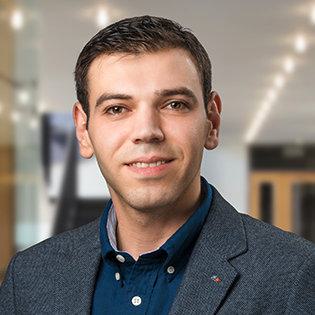
Fadi Boutros
Fraunhofer Institute for Computer Graphics Research IGD
Department of Computer Science, TU
Darmstadt, Darmstadt, Germany
Dr. Fadi Boutros is a scientific researcher at the Fraunhofer IGD and a principal investigator at the National Research Center for Applied Cybersecurity ATHENE, Germany. Fadi received his Ph.D. in computer science from TU Darmstadt (2022) and a master's degree in "Distributed Software Systems" from TU Darmstadt (2019). Also, he is participating in the Software Campus program, a management program of the German Federal Ministry of Education and Research (BMBF). He authored and co-authored several conference and journal papers. His main research interests lie in the fields of biometrics, machine learning, and efficient deep learning. For his scientific work, he received several awards, including the CAST-Förderpreis 2019 award, the IJCB 2022 Qualcomm Audience Choice Award, and the 2022 EAB Biometrics Industry Award from the European Association for Biometrics (EAB) for his Ph.D. dissertation.
Knowledge Distillation: Compact Model Performance for Scalable, Green, and Efficient Deployment
In this lecture on knowledge distillation (KD), we delve into its critical role in enhancing the performance of compact machine learning models, using face recognition as a prime example application. KD is a model compression technique that involves transferring knowledge from a large, complex teacher model to a smaller, more efficient student model. In the context of face recognition, KD has emerged as an effective approach to enhance the performance of lightweight models, ensuring they perform well in resource-constrained environments. This lecture will explore the principles of knowledge distillation and its application to face recognition tasks. We will discuss various distillation strategies, including traditional soft-label techniques and more advanced methods such as feature-based distillation. The lecture will also address the challenges specific to face recognition, such as handling large-scale datasets, managing intra-class variability and performing KD within a privacy friendly framework. The lecture further addresses the data requirements for effective distillation, highlighting the importance of high-quality labeled datasets and discussing techniques to simulate diverse and representative data distributions. Real-world examples from face recognition systems, like those used in security and authentication, will demonstrate how knowledge distillation bridges the gap between model efficiency and accuracy, enabling scalable deployment. Finally, the lecture will provide insights into the future of KD in face recognition, including integration with deep learning architectures and the potential for improving real-time performance on edge devices.
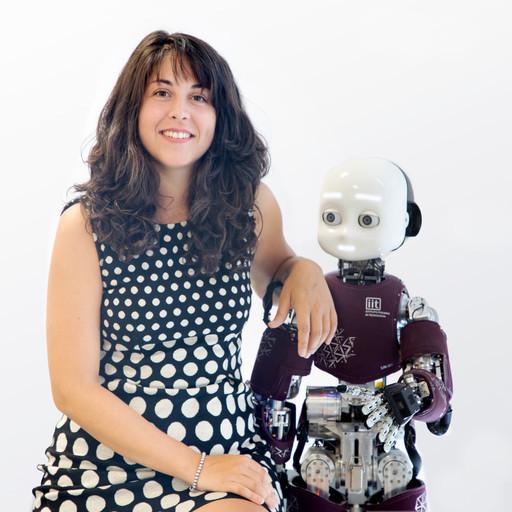
Giulia d'Angelo
Faculty of Electrical Engineering, Czech Technical University, Prague, Czech
Giulia D'Angelo is currently an MSCA Postdoctoral Fellow at the Czech Technical University in Prague, focusing on neuromorphic algorithms for active vision. She obtained a Bachelor's degree in Biomedical Engineering at The University of Genoa and a Master's degree in Neuroengineering, during which she developed a neuromorphic system for the egocentric representation of peripersonal visual space at King's College London. She earned her PhD in neuromorphic algorithms at the University of Manchester, in collaboration with the Event-Driven Perception for Robotics Laboratory at the Italian Institute of Technology, where she proposed a biologically plausible model for event-driven, saliency-based visual attention. She was recently awarded the Marie Skłodowska-Curie Fellowship, through which she explores sensorimotor contingency theories for neuromorphic active vision algorithms.
What's catching your eye? - Bioinspired and neuromorphic algorithms to model visual attention
Vision is an exploratory behaviour that relies heavily on the dynamic relationship between
actions and sensory feedback. For any agent—whether animal or robotic—processing visual
sensory input efficiently is crucial for understanding and interacting with its environment.
The key challenge lies in selectively filtering relevant information from the constant
stream of complex sensory data. This process, known as selective attention,
is also driven by the intricate interplay between bottom-up and top-down mechanisms,
which together organize and interpret visual scenes.
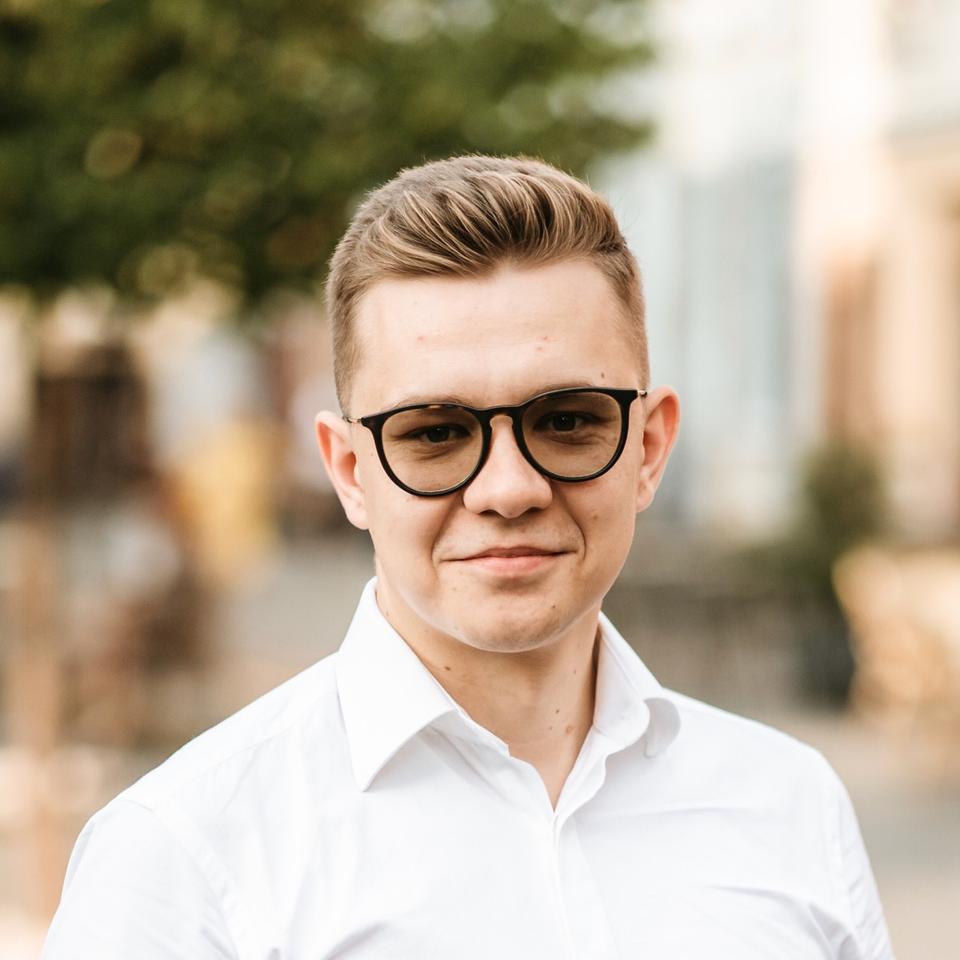
Cosmin Bercea
Technical University of Munich, Munich, Germany
Cosmin Bercea is a postdoctoral researcher at the Technical University of Munich (TUM), working at the Chair for Computational Imaging and AI in Medicine (TUM School of Computation, Information and Technology) and the Chair for AI for Image-Guided Diagnosis and Therapy (TUM School of Medicine and Health). His research focuses on vision and multimodal learning in medicine, aiming to improve the early and accurate diagnosis of rare and complex medical conditions. He completed his PhD at TUM under the supervision of Prof. Julia Schnabel and Prof. Daniel Rueckert, where he developed robust machine learning algorithms for detecting a wide range of previously unseen anomalies in medical images. His work combines generative modeling, distribution learning, and AI-driven medical analysis to develop reliable and interpretable decision support systems in healthcare.
Diffusion Models in Medical Imaging: From Synthetic Data to Detecting the Unknown
Diffusion models have emerged as a powerful generative framework in natural image processing, setting new benchmarks in realism and controllability. Their success has spurred increasing interest in medical imaging, where they offer transformative potential across the imaging pipeline—from acquisition and reconstruction to downstream analysis and diagnosis. In this talk, I will introduce the fundamentals of diffusion models and the challenges they face when applied to medical imaging, particularly in solving inverse problems such as image reconstruction and denoising. I will then explore their role in synthetic data generation, where they not only enable augmentation for data-scarce settings but also facilitate counterfactual image generation—producing plausible variations of medical scans that help disentangle pathological from normal variations. A key aspect of this is conditioning diffusion models with language, enabling them to integrate domain knowledge and enhance interpretability. Building on these generative capabilities, I will focus on how diffusion models can support anomaly detection and aid in diagnosing rare and complex diseases by learning structured representations of normative anatomy. These models enable more refined anomaly localization and characterization, improving diagnostic support in challenging cases. I will also discuss how advancements in guidance techniques help refine model outputs, ensuring clinical relevance and enhancing their practical usability in medical imaging. This talk will provide a comprehensive perspective on the evolving role of diffusion models in medical imaging, highlighting their potential and the challenges that lie ahead.
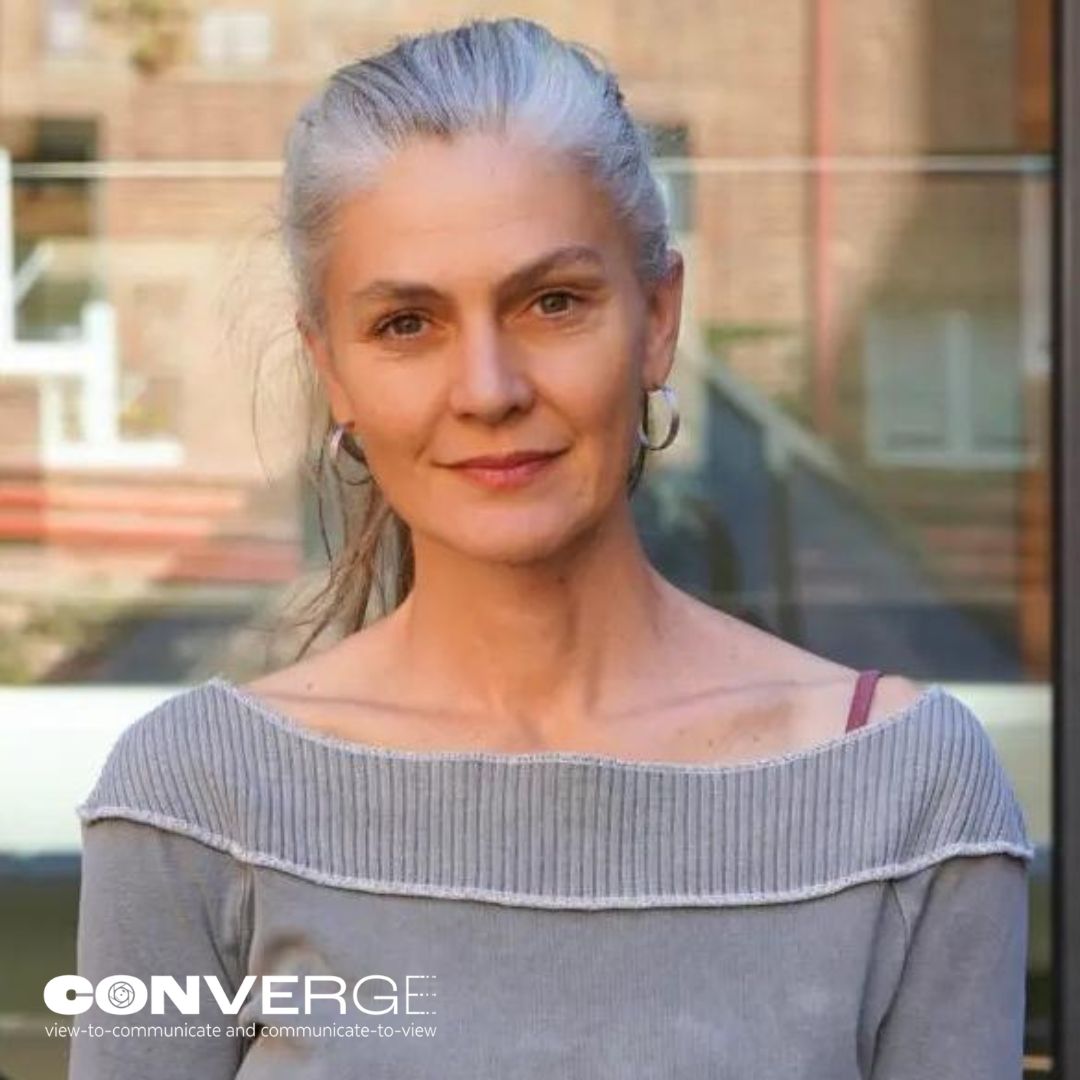
Maria-Cristina Marinescu
Instituto Quimico de Sarrià, Barcelona, Spain
Professor at Intituto Quimico de Sarrià in Barcelona and researcher in the field of Semantic Technologies and Artificial Intelligence at the National Center for Supercomputing (BSC-CNS)- Spain, where she has led national and international projects applying this technology to Smart Cities, social exclusion and poverty, and cultural heritage. Coordinator of the European project Saint George on a Bike, recently completed, which tried to automate with AI techniques the understanding of the visual content of paintings from the 12th-18th centuries and whose results will be applied within the framework of a collaboration with the Prado Museum. As a parallel line of research, she was involved in a long-term collaboration with the Carlos III University of Madrid and the National Center for Epidemiology (CNE), whose purpose was to simulate and implement strategies to evaluate the evolution of infectious diseases such as COVID; The tool developed is one of the few used by the ECDC (European Center for Disease Prevention and Control) Modeling Hub. She is the author of more than 50 articles in prestigious conferences and international journals, has participated in invited conferences, has several patents, and has participated in standardization work. She has a PhD from the University of California, has been a PostDoc at MIT, and has worked for several years at IBM T.J.Watson.
Multimodal text-vision models: algorithms, challenges, and applications *
In this talk we will explore the fundamentals of text-vision models, their different types of architecture, the different options and challenges, and some of their applications. We will also discuss fine-tuning of these models to avoid problems still existing when applying these methods to domain with “small” data – e.g. hallucinations. We will also present some examples of using semantics to guide the learning outcomes, which seems to make a difference in the performance of both unimodal and multimodal AI for small data domains.
* Unfortunately, it was cancelled due to a personal problem of the speaker.
Case Studies
Luís Rosado
Fraunhofer Portugal AICOS, Porto, Portugal
Ph.D. Luís Rosado is a Senior Scientist at Fraunhofer Portugal AICOS. He received a Ph.D. in Biomedical Engineering (2018) from the Faculty of Engineering of the University of Porto, and a M.Sc. in Biomedical Engineering (2009) from Instituto Superior Técnico of the Technical University of Lisbon. His research focuses on applying computer vision and machine learning to various industry sectors, being currently engaged in developing solutions for health, viticulture, and the automotive industry. Current areas of interest include Generative AI, Data-centric ML, Explainable AI, and Industrial Visual Inspection.
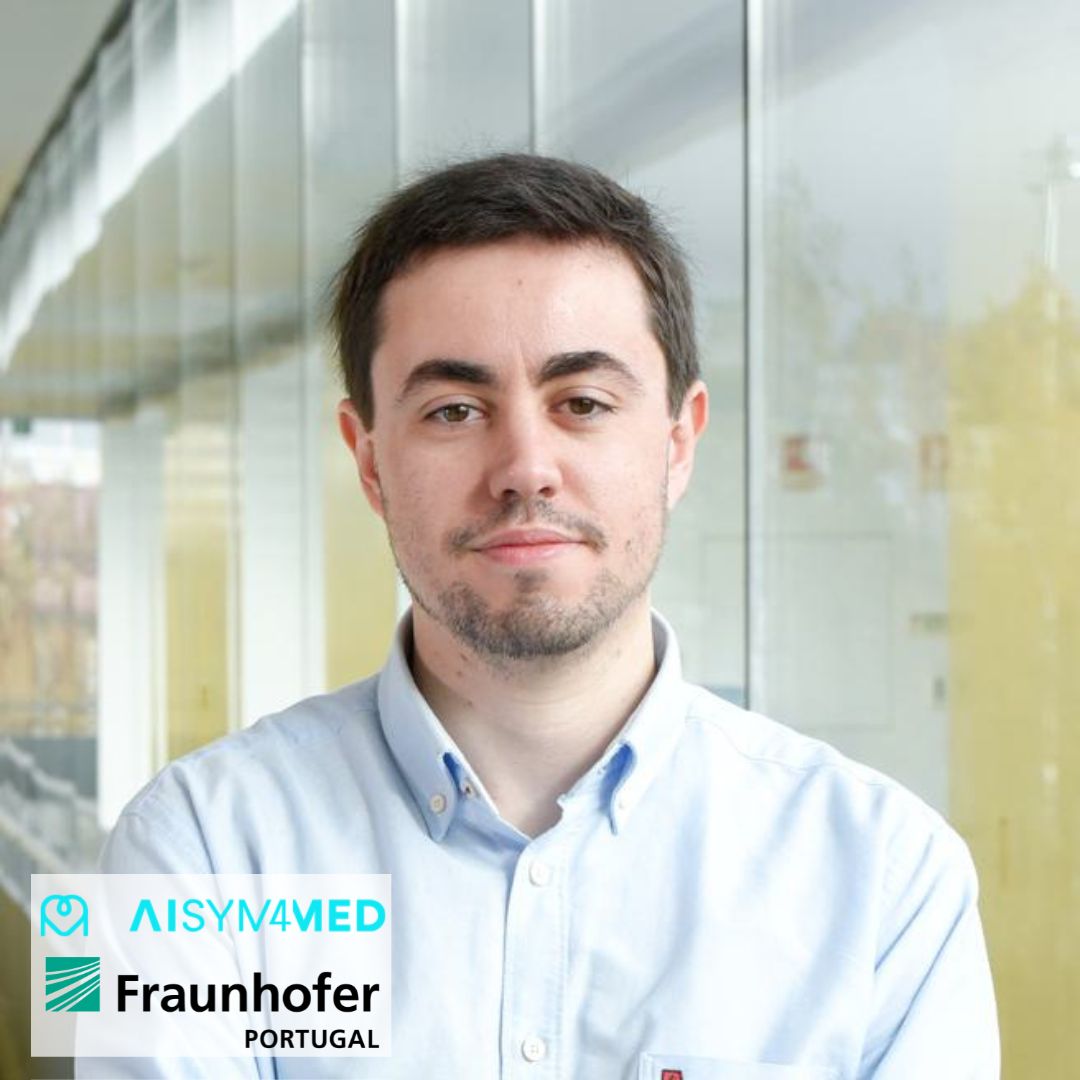
Ivo Façoco
Fraunhofer Portugal AICOS, Porto, Portugal
Ivo Façoco earned his M.Sc. in Computer Engineering and Informatics from FEUP Faculty in 2023. He is currently a Scientist at the Intelligent Stems research group at the Fraunhofer Center for Assistive Information and Communication Solutions (AICOS). His research focuses on image synthesis, data quality assurance, and data-driven techniques to enhance machine and deep learning algorithms. He has contributed to projects in both the medical and industrial domains, with a particular emphasis on image-based applications.
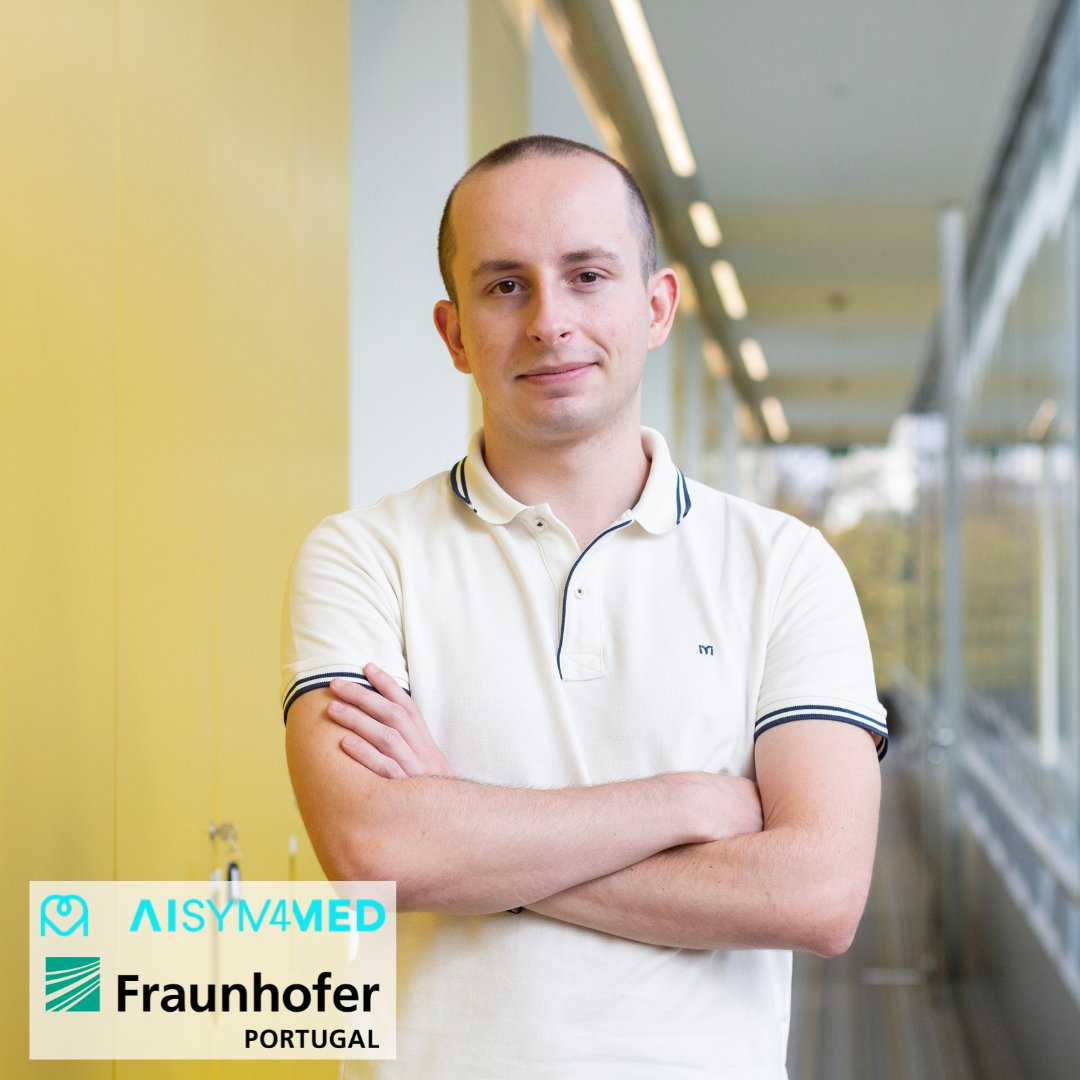
Generating Synthetic Retinal Fundus Images with Diffusion Models
This session will allow a case study demonstration of controllable strategies for generating realistic and representative synthetic retinal fundus images with diffusion models. With a hands-on component focused on enhancing data auditing of real and synthetic retinal fundus image datasets using the recently open-sourced pyMDMA library. This will motivate a discussion about the practical implications of synthetic health data, including its benefits, risks, and ethical considerations.
AI Talks
Hélder P. Oliveira
Faculty of Science, University of Porto (FCUP), Porto, Portugal
Institute for Systems and Computer Engineering, Technology and Science (INESC TEC), Porto, Portugal
Hélder P. Oliveira received the Ph.D. degree in electrical and computer engineering from the University of Porto, Portugal, in 2013. He is working at the Computer Science Department of the Faculty of Sciences of the University of Porto as an Assistant Professor. He is also working as Senior Researcher at INESC TEC and at Visual Computing and Machine Intelligence Area. He co-authored 50+ international peer-reviewed papers, have one patent conceded (Europe, China, Japan) and 90+ works in international conferences. In total, these publications have attracted +1800 citations, with an h-index of 25 according to Google Scholar. He is the Director of the Master in Medical Informatics from University of Porto. Hélder Oliveira is member of IEEE and also of the Portuguese Association of Pattern Recognition (APRP), which was elected as member of the presidency in 2023. His research interests include Computer Vision and Machine Learning on biomedical fields.
Computer Vision and Machine Learning Challenges in Cancer Research
In modern healthcare, especially in Cancer, medical imaging plays an important role throughout the clinical process, from diagnosis and treatment planning to surgery and follow-up research. Patient triage in acute and chronic care, imaging-guided interventions, and treatment planning optimization are now part of standard clinical practice in several subspecialties. Medical images normally face one or more of the following challenges during acquisition: low resolution (in the spatial and spectral domains); high-level of noise; low contrast appearance; presence of geometric deformations; and the presence of imaging artefacts. Finer spatial sampling, which can be achieved with longer acquisition times, can avoid the drawbacks of low resolution and low contrast. However, this also increases the probability of geometric transformations, such as patient movement, resulting in blurred images. Imaging artefacts also lead to challenging problems in medical image analysis. Learning methodologies could be also a way to help physicians in their daily tasks, for example when dealing with multiple data sources, data sparsity or providing information about visual findings using, for example, explainable methods. Our main activities are focused on interdisciplinary research, computational models on health data from multiple sources, models integrating clinical domain knowledge and transparent, causal and accurate algorithms for improving clinical outcomes.
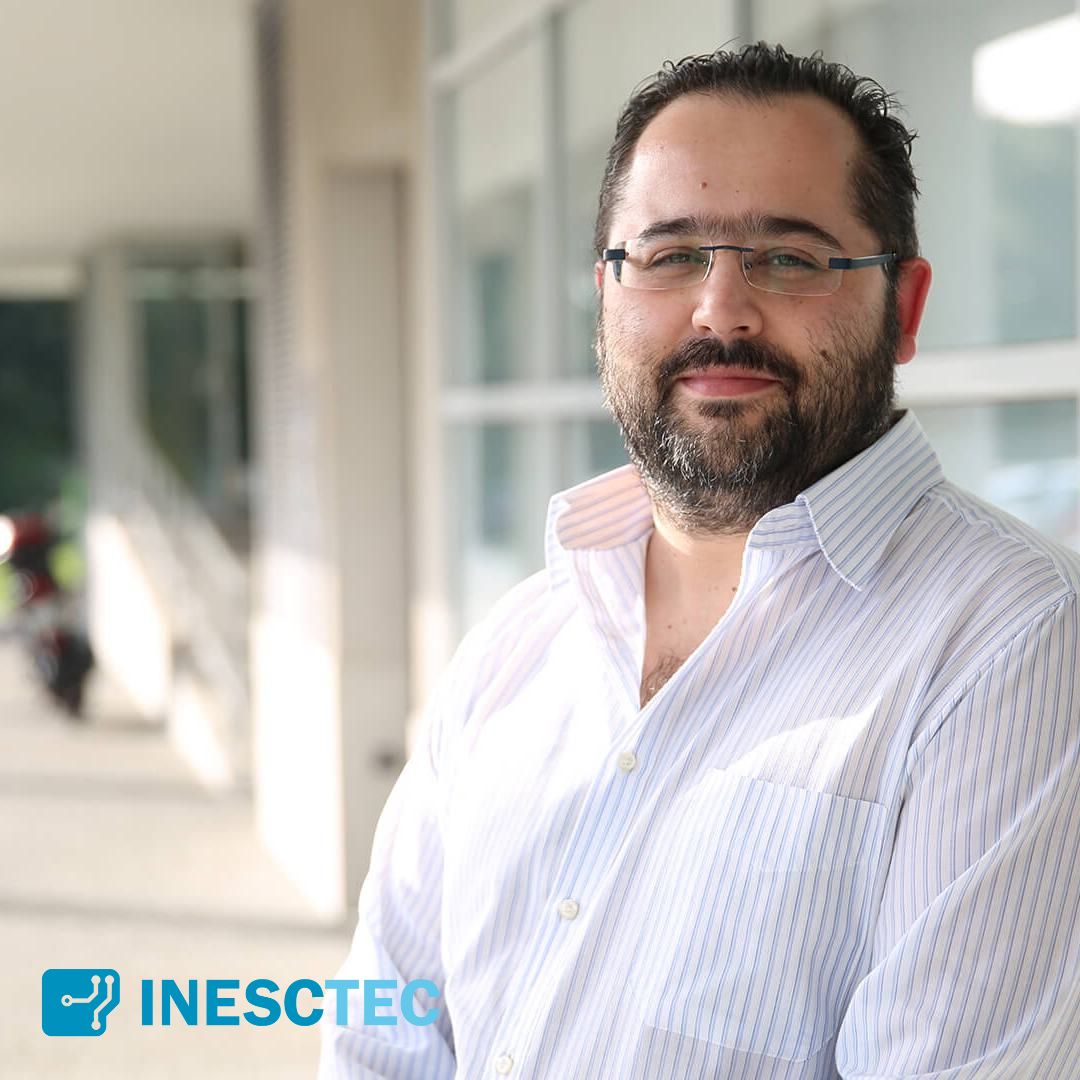
Luís Rosado
Fraunhofer Portugal AICOS, Porto, Portugal
Ph.D. Luís Rosado is a Senior Scientist at Fraunhofer Portugal AICOS. He received a Ph.D. in Biomedical Engineering (2018) from the Faculty of Engineering of the University of Porto, and a M.Sc. in Biomedical Engineering (2009) from Instituto Superior Técnico of the Technical University of Lisbon. His research focuses on applying computer vision and machine learning to various industry sectors, being currently engaged in developing solutions for health, viticulture, and the automotive industry. Current areas of interest include Generative AI, Data-centric ML, Explainable AI, and Industrial Visual Inspection.
AISym4MED - improving the healthcare data system and fostering robust medical AI
The EU-funded AISym4MED project is creating a platform to support the development of digital solutions and services for medical applications by enabling innovators to develop, evaluate and improve AI systems in a secure and trustworthy environment. AISym4MED will facilitate the development of robust AI solutions in healthcare by leveraging synthetic data generation and auditing, ensuring secure data sharing to improve medical research and patient outcomes.

Luís Pessoa
Faculty of Engineering, University of Porto (FEUP), Porto, Portugal
Institute for Systems and Computer Engineering, Technology and Science (INESC TEC), Porto, Portugal
Luís Pessoa is currently an Assistant Professor at the University of Porto, group leader at the Centre of Telecommunications and Multimedia from INESC TEC, and member of the Steering Board of the 6G Smart Networks and Services (6G-SNS) initiative. His main research interests include reconfigurable intelligent surfaces and computer vision towards integrated communications, localisation and sensing in 6G.
View-to-communicate and communicate-to-view: the CONVERGE Project
In this talk I will introduce CONVERGE, a project that aims to create an innovative research toolset in line with the motto “view-to-communicate and communicate-to-view”. The toolset will comprise vision-aided large intelligent surfaces, vision-aided fixed and mobile base stations, a vision-radio simulator and 3D environment modeller, and machine learning algorithms for multimodal data integration, such as wireless communications signals, video/lidar streams, radio/radar sensing, and network traffic traces. The integration of all these domains will play a crucial role in shaping the next generation of wireless communication technologies and associated applications.
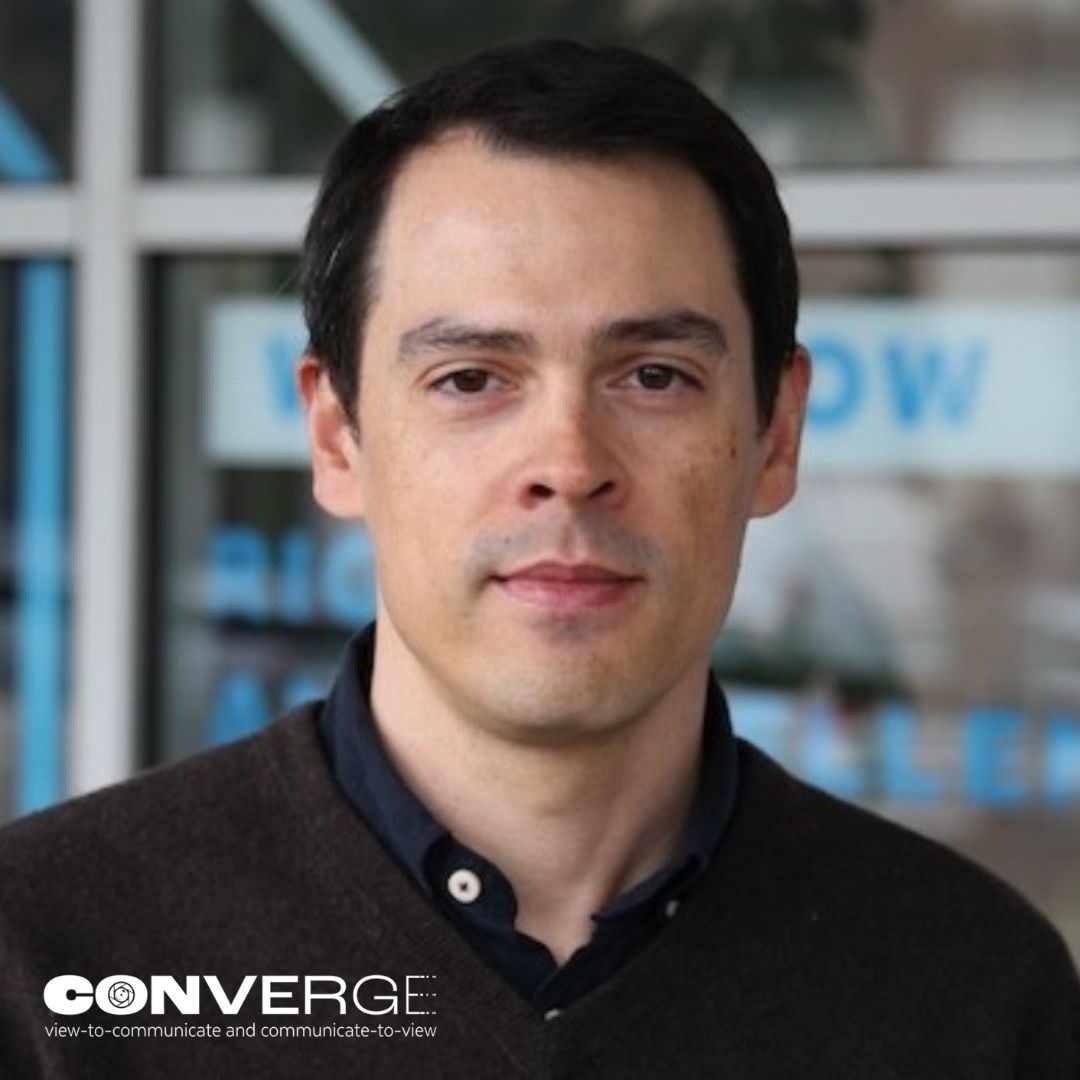
Kelwin Fernades
NILG.AI
Kelwin Fernandes is passionate about discovering new ways of using artificial intelligence (AI) in businesses and has expertise in AI-based digital transformation and data-driven decision-making in organizations. He is the CEO of NILG.AI, an AI consultancy company that aims to become the standard for AI adoption, making any company highly efficient, ever-improving, and adaptable.
The AI Canvas: A Lingua Franca for AI
TBA
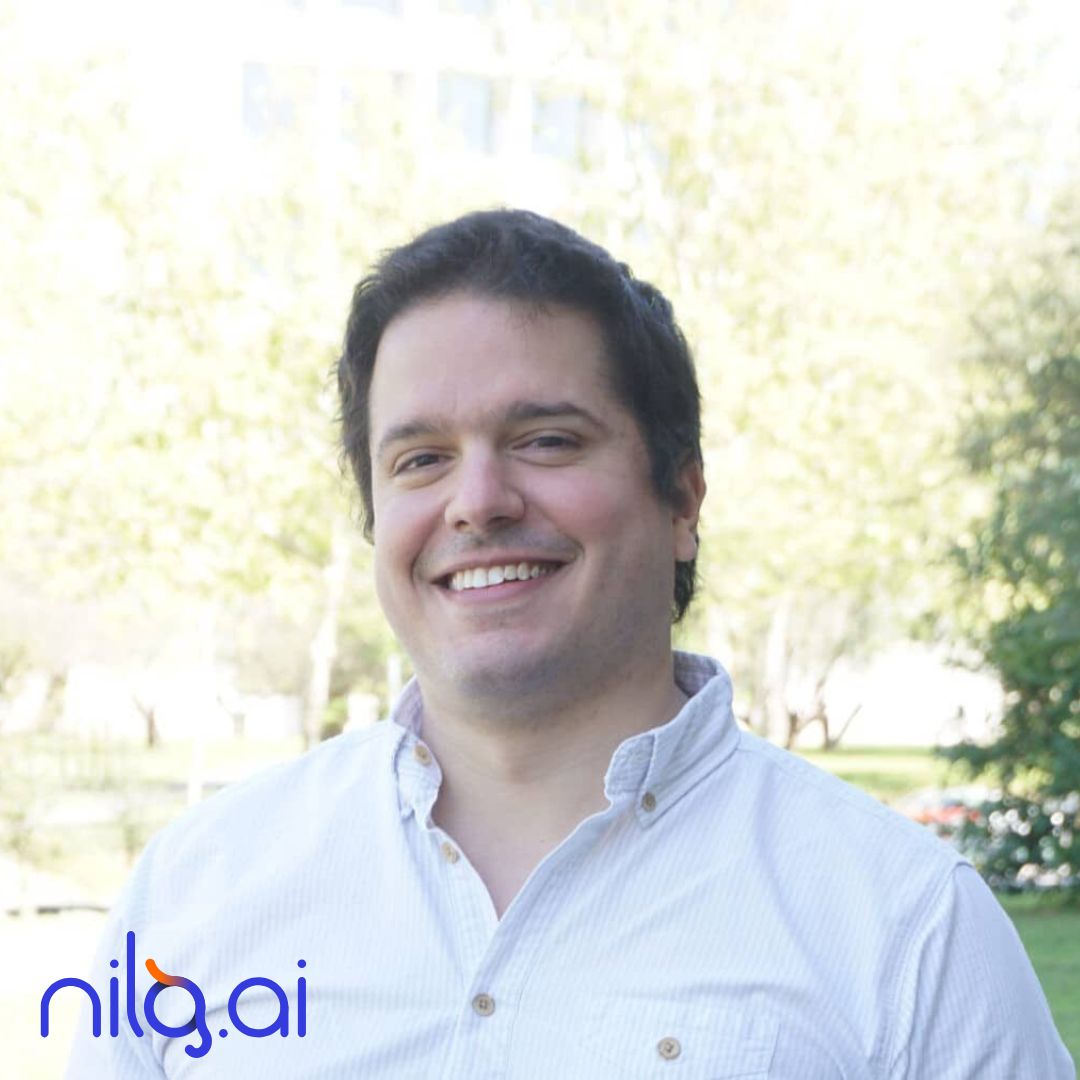
Susana Brás
Institute of Electronic and Computer Engineering of Aveiro (IEETA), Aveiro University (UA)
Susana Brás is a researcher at IEETA, University of Aveiro, with a background in Applied Mathematics and a PhD in Biomedical Sciences. Her research focuses on affective computing and the responsible application of AI, exploring human behavior and environmental contexts to enhance quality of life. She addresses challenges such as class imbalance and missing data. With experience in student supervision, scientific publishing, and project management, Susana is a strong advocate for clear scientific communication. Passionate about promoting gender equity in tech, she is actively involved in initiatives like Geek Girls Portugal.
Data Representativeness: What Are We Missing?
In an era where data drives decisions, we often focus on volume, velocity, and variety — but overlook one critical dimension: representativeness. In this talk, we will explore the concept of data representativeness, why it matters for building reliable models, and how biased or incomplete datasets can lead to imperfect insights and systemic failures. Are we, as societies, also "training" our systems on biased observations?
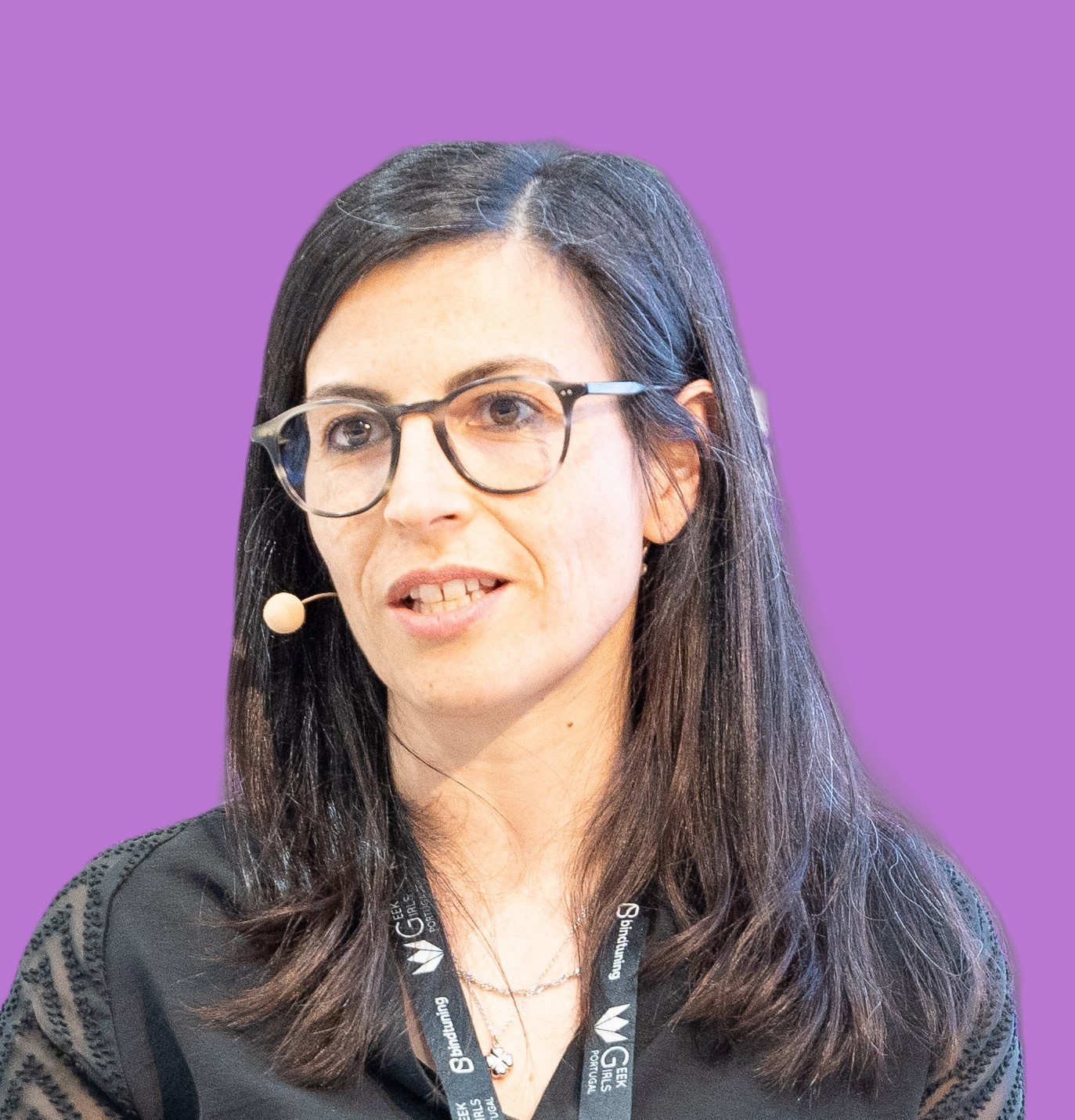
Eduardo Castro
LTPlabs, Porto, Portugal
TBA
Building reliable GenAI systems
TBA
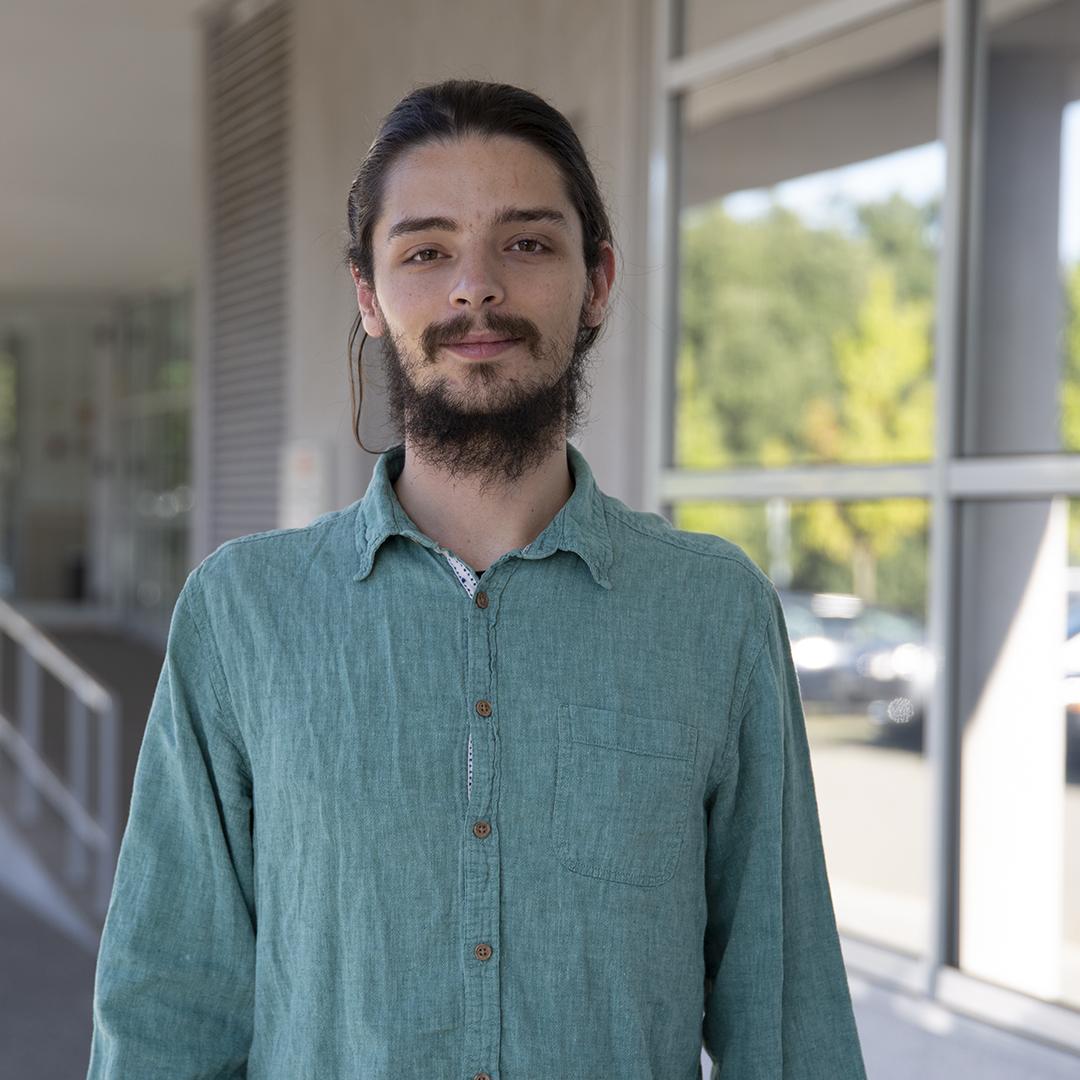
Round-Table
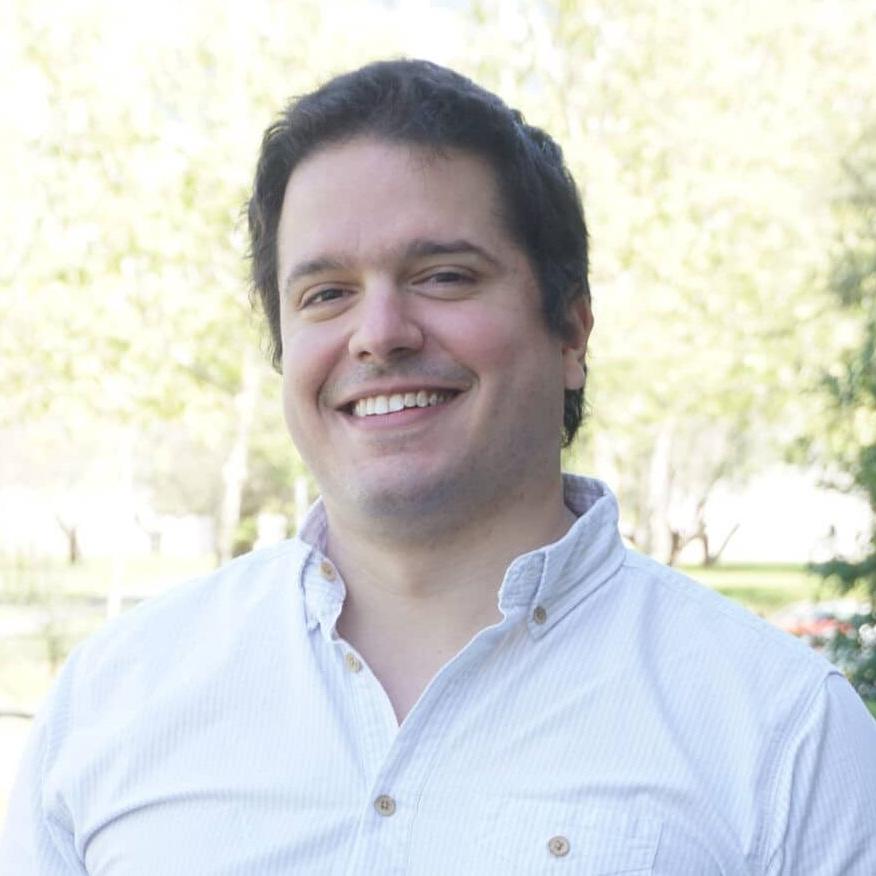
Kelwin Fernandes
Moderator
NILG.AI
Kelwin Fernandes is passionate about discovering new ways of using artificial intelligence (AI) in businesses and has expertise in AI-based digital transformation and data-driven decision-making in organizations. He is the CEO of NILG.AI, an AI consultancy company that aims to become the standard for AI adoption, making any company highly efficient, ever-improving, and adaptable.
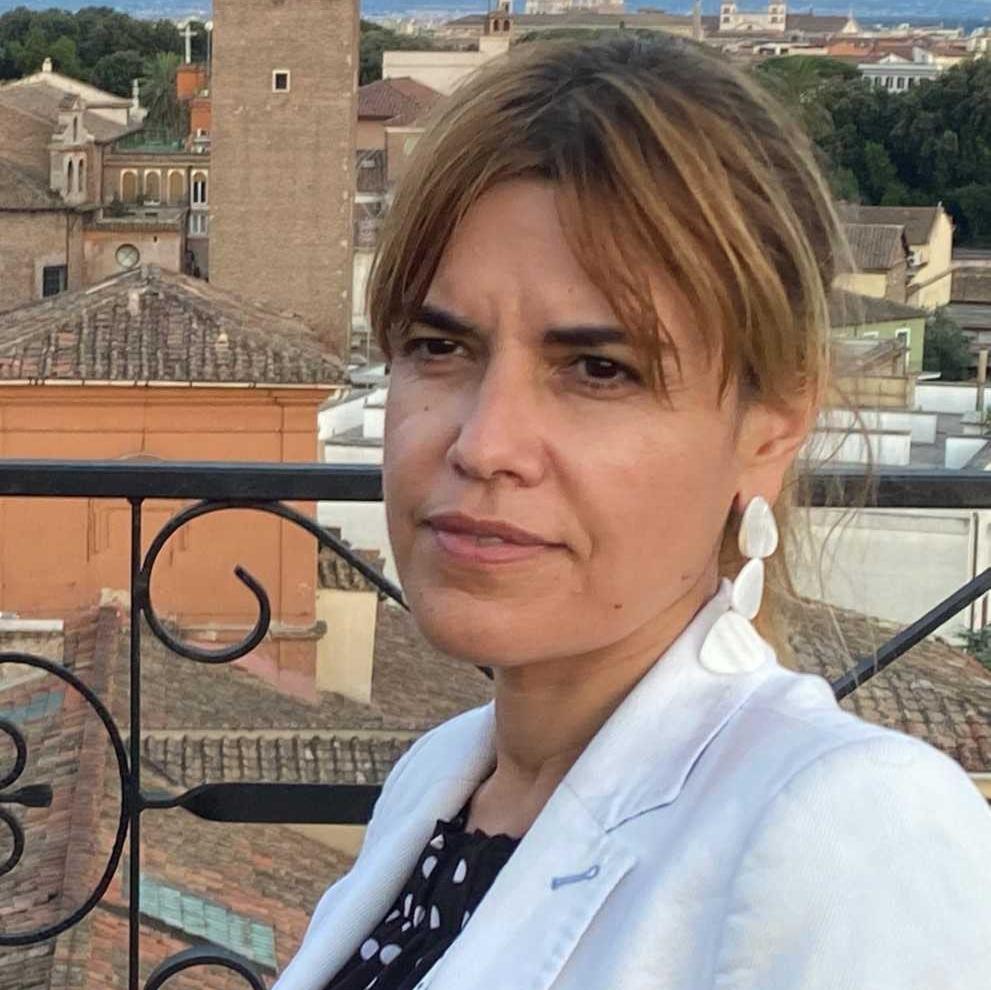
Dalila Durães
Centro ALGORITMI/ LASI Intelligent Systems Associate Laboratory, School of Engineering – University of Minho, Braga, Portugal
Dalila Durães is a Assistant Professor of Computer Science at the Department of Informatics,
the School of Engineering, the University of Minho (Portugal), and a researcher at the
ALGORITMI Centre and LASI Intelligent Systems Associate Laboratory. She holds two
international PhD: one in Educational Sciences, in Teachers, Curricula and Educational
Institutions, from the University of Granada, Spain, completed in 2012, and another in
Artificial Intelligence by the Polytechnic University of Madrid, Spain, completed in 2018.
She is vice-chair of the IEEE in Computational Intelligence Society, Portugal Chapter and
vice-chair of the Portuguese Association for Artificial Intelligence (APPIA).

Fadi Boutros
Fraunhofer Institute for Computer Graphics Research IGD
Department of Computer Science, TU
Darmstadt, Darmstadt, Germany
Dr. Fadi Boutros is a scientific researcher at the Fraunhofer IGD and a principal investigator at the National Research Center for Applied Cybersecurity ATHENE, Germany. Fadi received his Ph.D. in computer science from TU Darmstadt (2022) and a master's degree in "Distributed Software Systems" from TU Darmstadt (2019). Also, he is participating in the Software Campus program, a management program of the German Federal Ministry of Education and Research (BMBF). He authored and co-authored several conference and journal papers. His main research interests lie in the fields of biometrics, machine learning, and efficient deep learning. For his scientific work, he received several awards, including the CAST-Förderpreis 2019 award, the IJCB 2022 Qualcomm Audience Choice Award, and the 2022 EAB Biometrics Industry Award from the European Association for Biometrics (EAB) for his Ph.D. dissertation.
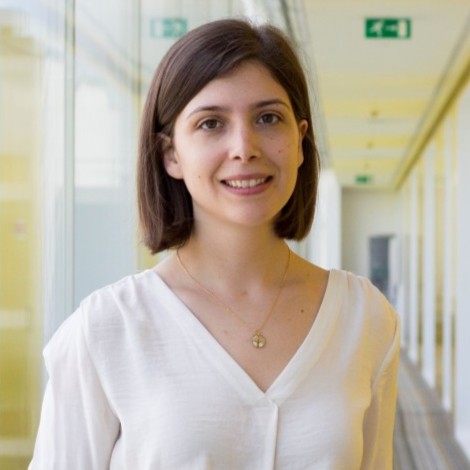
Inês Sousa
Fraunhofer Portugal AICOS, Porto, Portugal
Inês Sousa is the Head of Intelligent Systems and Senior Scientist at Fraunhofer Portugal AICOS. Inês holds a PhD in Biomedical Engineering from the Instituto Superior Técnico, where, in collaboration with Siemens Healthcare and Hospital da Luz, she studied brain function through quantitative Magnetic Resonance Imaging techniques. From human brain research, she transitioned to artificial intelligence, maintaining a focus on processes that evolve over time, such as the evolution of clinical risk factors or post-surgical recovery. Currently, she is involved in the Center for Responsible AI, an initiative that brings together the entire national AI ecosystem, with the goal of advancing the field of developing robust and auditable AI solutions while maintaining data privacy. She also coordinates the European AISym4Med Consortium, aiming to create a platform that supports the development of AI solutions for health, ensuring secure access to high-quality clinical data.

Wilson Silva
Utrecht University, Utrecht, Netherlands
Wilson Silva is an Assistant Professor in the Departments of Information and Computing Sciences and
Biology
at Utrecht University, as well as a Guest AI Researcher in the Department of Radiology at the
Netherlands
Cancer Institute. His research focuses on trustworthy artificial intelligence for life sciences,
with particular emphasis on explainable AI, privacy-preserving machine learning, and enhancing
generalizability
in cancer research.
Before moving to the Netherlands, Wilson completed his PhD at the University of Porto/INESC TEC,
where he conducted research within the Visual Computing and Machine Intelligence group under the
guidance of
Prof. Jaime Cardoso. During his PhD, he also spent time as a visiting researcher in Prof. Mauricio
Reyes’
lab at the University of Bern in Switzerland. Wilson holds a master’s degree in Electrical and
Computer
Engineering from the University of Porto.
Responsible AI
Round-TableArtificial Intelligence (AI) has seen unprecedented advancements in recent years, driving innovation across industries. However, ensuring the responsible deployment of AI systems remains a critical challenge. This round-table discussion will explore the principles of Responsible AI, focusing on key aspects such as transparency, ethics, and accountability. Experts from diverse fields will engage in a thought-provoking dialogue on AI fairness, data privacy, and the broader implications of AI on individuals and society. By addressing these concerns, we aim to foster a deeper understanding of how AI can be developed and deployed in a manner that aligns with human values and social well-being.
Tech Talks
Luís Braga
Municipal Youth Division, Porto City Council, Porto, Portugal
Luís Braga has a degree in Sociology and a Master's in Economics and Human Resources Management and is currently a Senior Technician at Porto City Council. He had the opportunity to work in diverse environments, in different areas and sectors of activity, where he developed a multifaceted set of skills, primarily through participation in challenging projects, especially in Human Resources (Development and Support), Career Consulting and Project Management. As a professional at Porto City Council, participation and contribution to relevant projects such as Keep in Pact (responsible for the training module "DevelopingPartner's Competencies in Multistakeholder Partnerships), Career Summit, SpeedRecruitment, Summer OpPORTOnities, Master Spitch, Youth Skills Academy, PortoInforma, Capacita.te or Study in Porto have also been essential drivers of personal and professional development.
Study in Porto
Study in Porto is a platform that aggregates information about the city of Porto. In it, all interested (young) people can find, in the same place, information about the training offered in the city of Porto, accommodation, cultural offers, transport, cost of living, scholarships, and much more. The platform is informative, intuitive and extremely useful, allowing all interested parties to make informed and easy decisions regarding their visit to Porto.
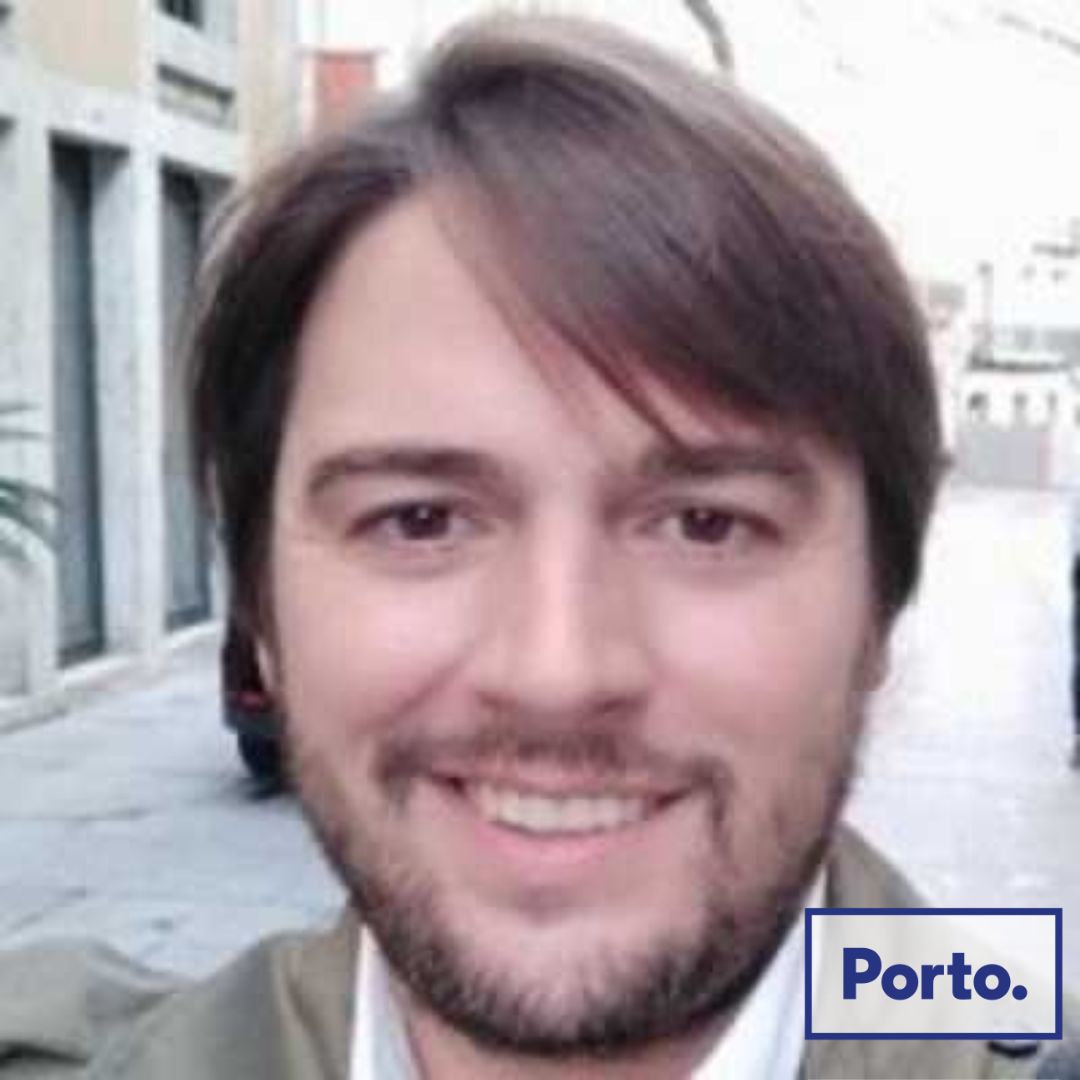
Schedule
| Time | MONDAY 7 April 2025 Sponsored by  |
TUESDAY 8 April 2025 |
WEDNESDAY 9 April 2025 Sponsored by  and  |
THURSDAY 10 April 2025 |
FRIDAY 11 April 2025 |
|---|---|---|---|---|---|
| 09:00 |
Check-In
9:00-9:30
|
Talk
9:00-10:30
What's catching your eye? - Bioinspired and neuromorphic algorithms to model visual attention
Giulia d'Angelo
|
Talk
9:00-10:30
Diffusion Models in Medical Imaging: From Synthetic Data to Detecting the Unknown
Cosmin Bercea
|
Talk
9:00-10:30
Explainable AI in Healthcare: Fundamentals, Challenges, and the Road to Trustworthy AI
Wilson Silva
|
Talk
9:00-11:00
Knowledge Distillation: Compact Model Performance for Scalable, Green, and Efficient Deployment
Fadi Boutros
|
| 09:30 |
Welcoming Session
9:30-10:00
|
||||
| 10:00 |
Talk
10:00-11:00
Towards stronger and safer vision-language models
Yongshuo Zong
|
||||
| 10:30 |
Coffee Break
10:30-11:00
|
Coffee Break
10:30-11:00
|
Coffee Break
10:30-11:00
|
||
| 11:00 |
Coffee Break
11:00-11:30
|
Hands-On
11:00-12:00
What's catching your eye? - Bioinspired and neuromorphic algorithms to model visual attention
Giulia d'Angelo
|
Hands-On
11:00-12:00
Diffusion Models in Medical Imaging: From Synthetic Data to Detecting the Unknown
Cosmin Bercea
|
Talk
11:00-12:30
Explainable AI in Healthcare: Fundamentals, Challenges, and the Road to Trustworthy AI
Wilson Silva
|
Coffee Break
11:00-11:30
|
| 11:30 |
Talk
11:30-12:30
Towards stronger and safer vision-language models
Yongshuo Zong
|
Hands-On
11:30-13:00
Knowledge Distillation: Compact Model Performance for Scalable, Green, and Efficient Deployment
Fadi Boutros
|
|||
| 12:00 |
Lunch Break
12:00-13:30
|
Lunch Break
12:00-13:30
|
|||
| 12:30 |
Lunch Break
12:30-14:00
|
Lunch Break
12:30-14:00
|
|||
| 13:00 |
Lunch Break
13:00-14:30
|
||||
| 13:30 |
AI Talks
13:30-14:30
The AI Canvas: A Lingua Franca for AI
Kelwin Fernandes
|
Hands-On
13:30-14:30
Diffusion Models in Medical Imaging: From Synthetic Data to Detecting the Unknown
Cosmin Bercea
|
|||
| 14:00 |
Hands-On
14:00-15:00
Towards stronger and safer vision-language models
Yongshuo Zong
|
Hands-On
14:00-16:00
Explainable AI in Healthcare: Fundamentals, Challenges, and the Road to Trustworthy AI
Wilson Silva
|
|||
| 14:30 |
AI Talks
14:30-15:30
Computer Vision and Machine Learning Challenges in Cancer Research
Hélder P. Oliveira
|
AI Talks
14:30-15:30
AISym4MED - improving the healthcare data system and fostering robust medical AI
Luís Rosado
|
Round-Table
14:30-16:30
Responsible AI
Kelwin Fernandes, Dalila Durães, Fadi Boutros, Inês Sousa and Wilson Silva
|
||
| 15:00 |
AI Talks
15:00-15:30
View-to-communicate and communicate-to-view: the CONVERGE Project
Luís Pessoa
|
||||
| 15:30 |
AI Talks
15:30-16:30
Building reliable GenAI systems
Eduardo Castro
|
Free Time |
Coffee Break
15:30-16:00
|
||
| 16:00 |
Social Visit to Porto
16:00-17:30
Museum Visit
|
Case
Study
16:00-18:00
Generating Synthetic Retinal Fundus Images with Diffusion Models
Luís Rosado and Ivo Façoco
|
Coffee Break
16:00-16:30
|
||
| 16:30 |
Social Drinks
16:30-18:00
Welcoming "Porto de Honra"
|
Tech Talks
16:30-17:00
Study in Porto
Luís Braga
|
Closing Session
16:30-17:00
|
||
| 17:00 |
AI Talks
17:00-18:00
Data Representativeness: What Are We Missing?
Susana Brás
|
Free Time | |||
| 17:30 | Free Time | Free Time | |||
| 18:00 | Free Time | Free Time | |||
| 18:30 | |||||
| 19:00 |
Social Dinner
19:00-22:00
Formal Dinner
|
Social Game's Night
19:00-22:00
Informal Dinner and Games
|
|||
| 19:30 | |||||
| 20:00 | |||||
| 20:30 | |||||
| 21:00 | |||||
| 21:30 |
Venue
Porto is Portugal's second-largest city, European Best Destination in 2012, 2014 and 2017. Known as "The Invicta" - the epithet granted by Queen D. Maria II (daughter of D. Pedro IV) to the city because during the 19th-century Portuguese civil war, Porto withstood a siege of over a year.
Porto is full of contrasts within a small area and offers a diversity of styles and ambiences. In this city of great wine and rich history, you will enjoy the famous baroque-style monuments and the worldwide famous Port Wine cellars. With the World Heritage Douro Riverside in the background, the narrow and sinuous cobbled streets of this old and charming city contrast with the growing innovation, cutting-edge technology, and start-ups that have made Porto their home.
INVICTA School 2025 will take place at Porto Innovation Hub facilities. Located at Largo do Dr. Tito Fontes close to the Trindade Station in the city centre. Porto Innovation Hub is an initiative of the Municipality of Porto which aims to be a platform for the reinforcement of the city’s innovation and entrepreneurship ecosystem. This is a project coordinated by Porto Digital Association, a private non-profit association owned by Porto City Council, the University of Porto and Metro of Porto.
Hotels
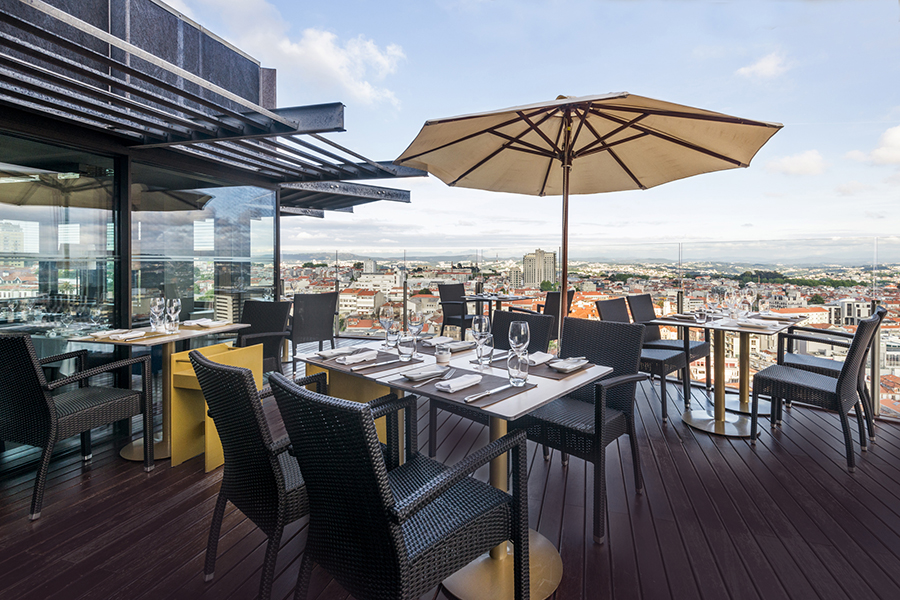
Hotel Dom Henrique Downtown
150 m's from the Venue
10% Discount available
Contact the hotels' reservations department and indicate that you are an INVICTA participant.
A 10% discount will be applied to the BB flexible rate.
Contacts:
- Phone:+351 223 401 616
- Email: reserv@hoteldomhenrique.pt
Team
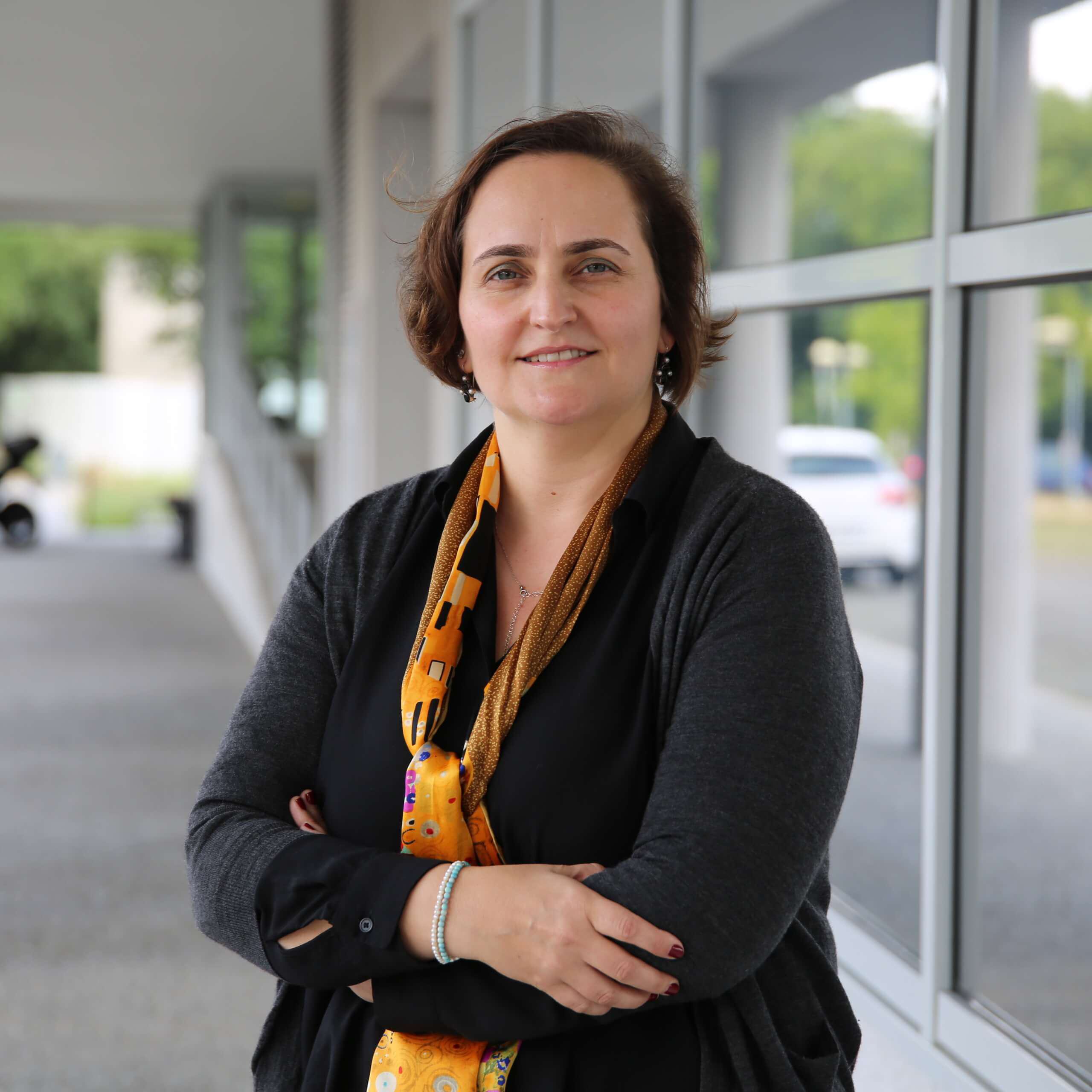
Ana F. Sequeira
INESC TEC & FEUP
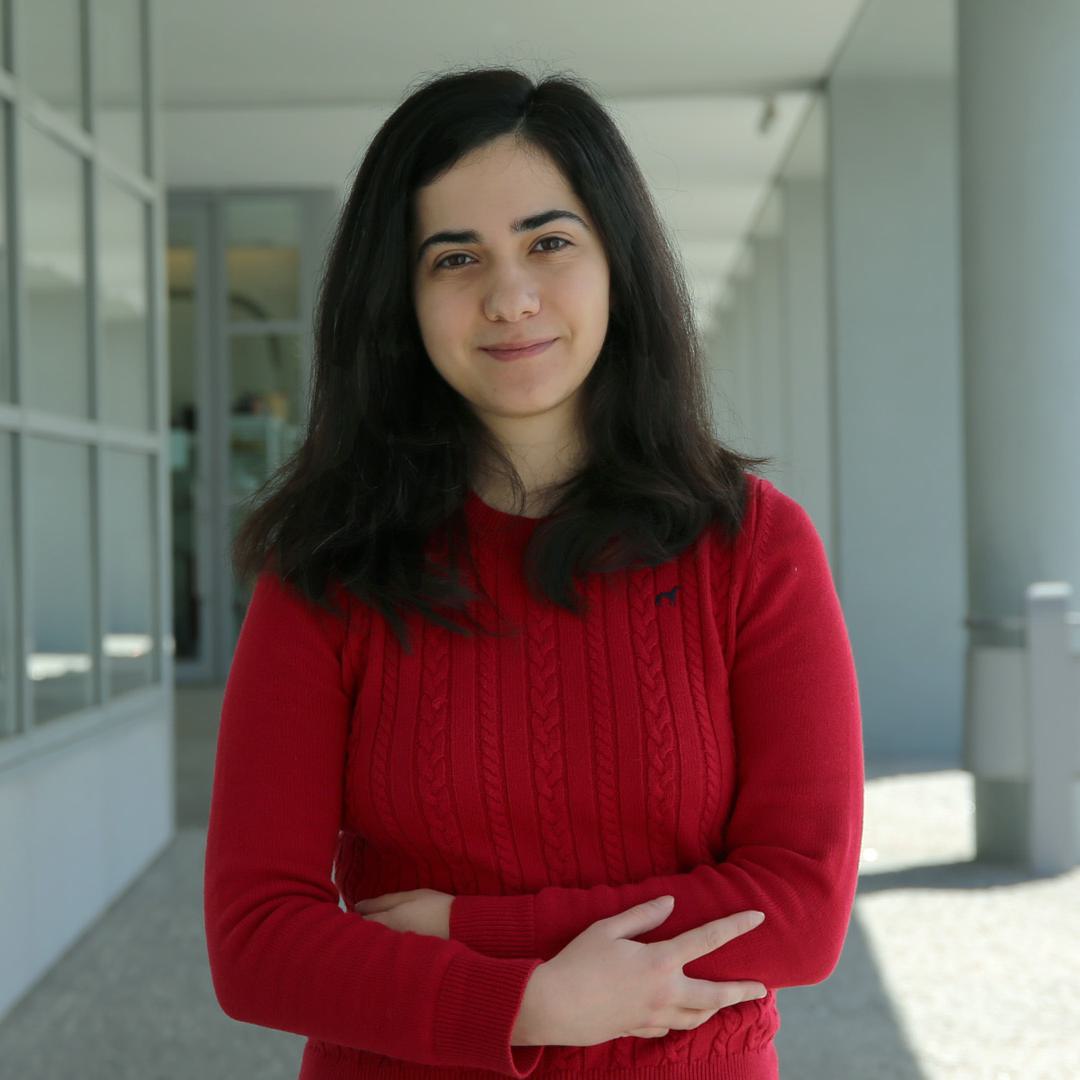
Ana F. Nogueira
INESC TEC & FEUP
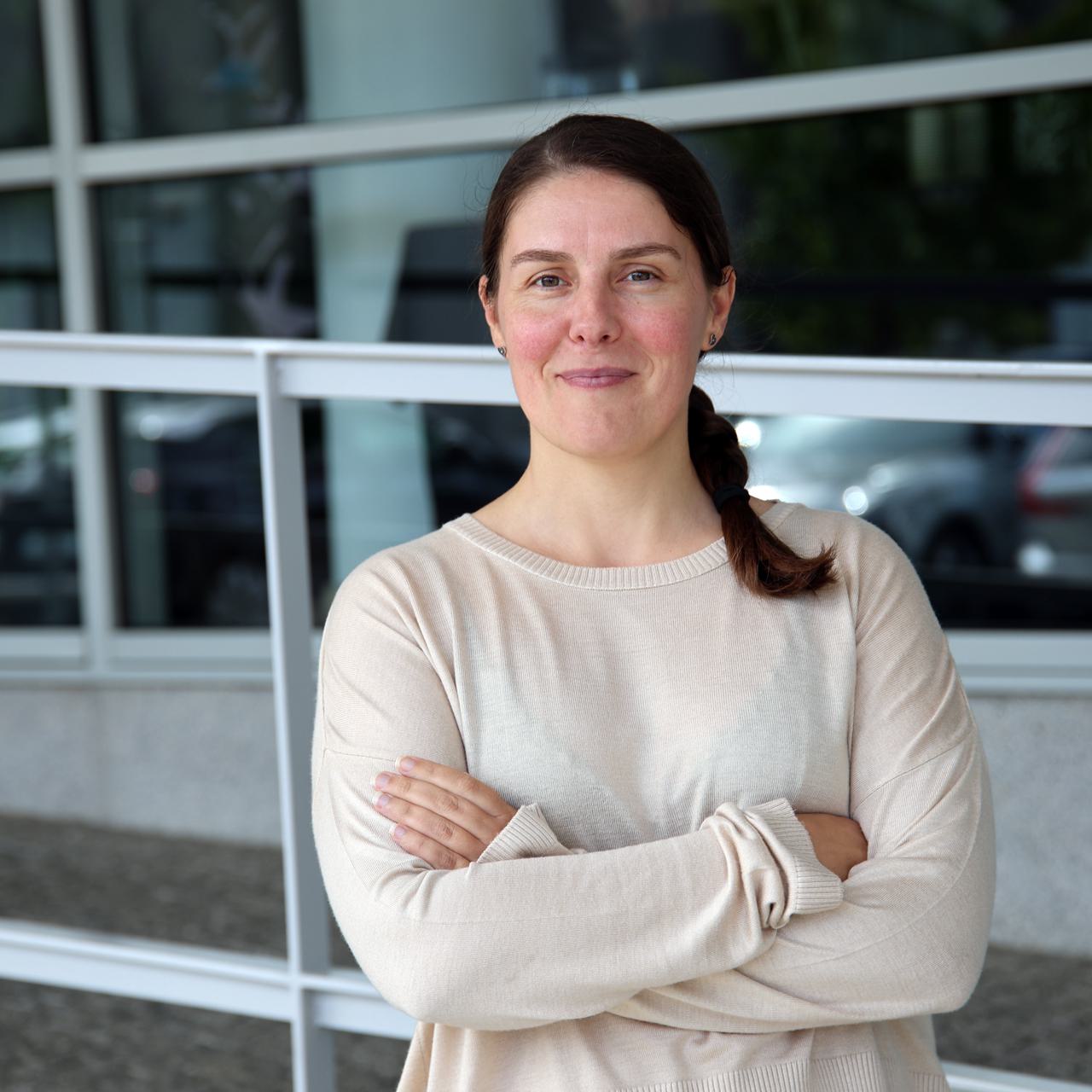
Daniela Santos
INESC TEC
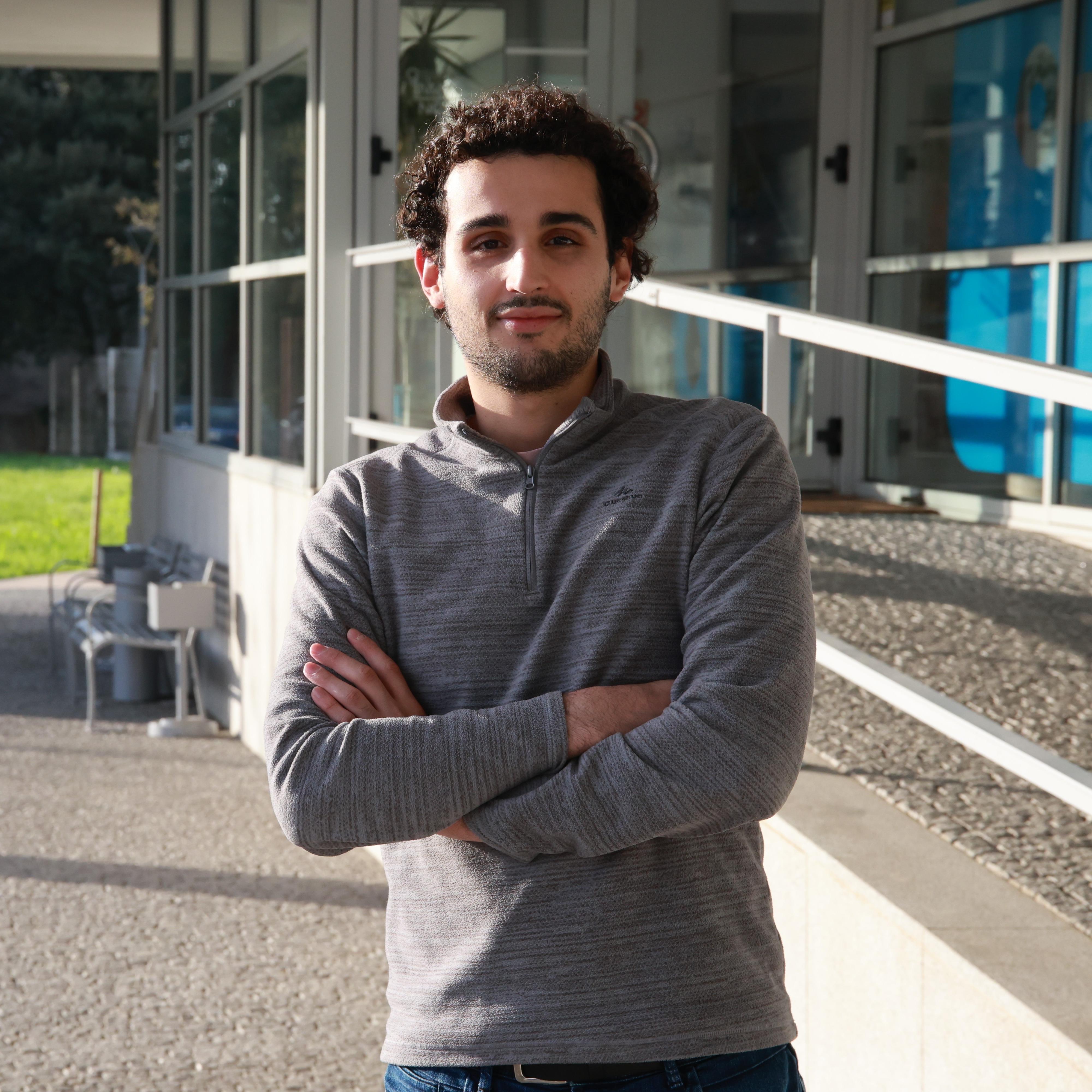
Felipe Coutinho
INESC TEC & FEUP
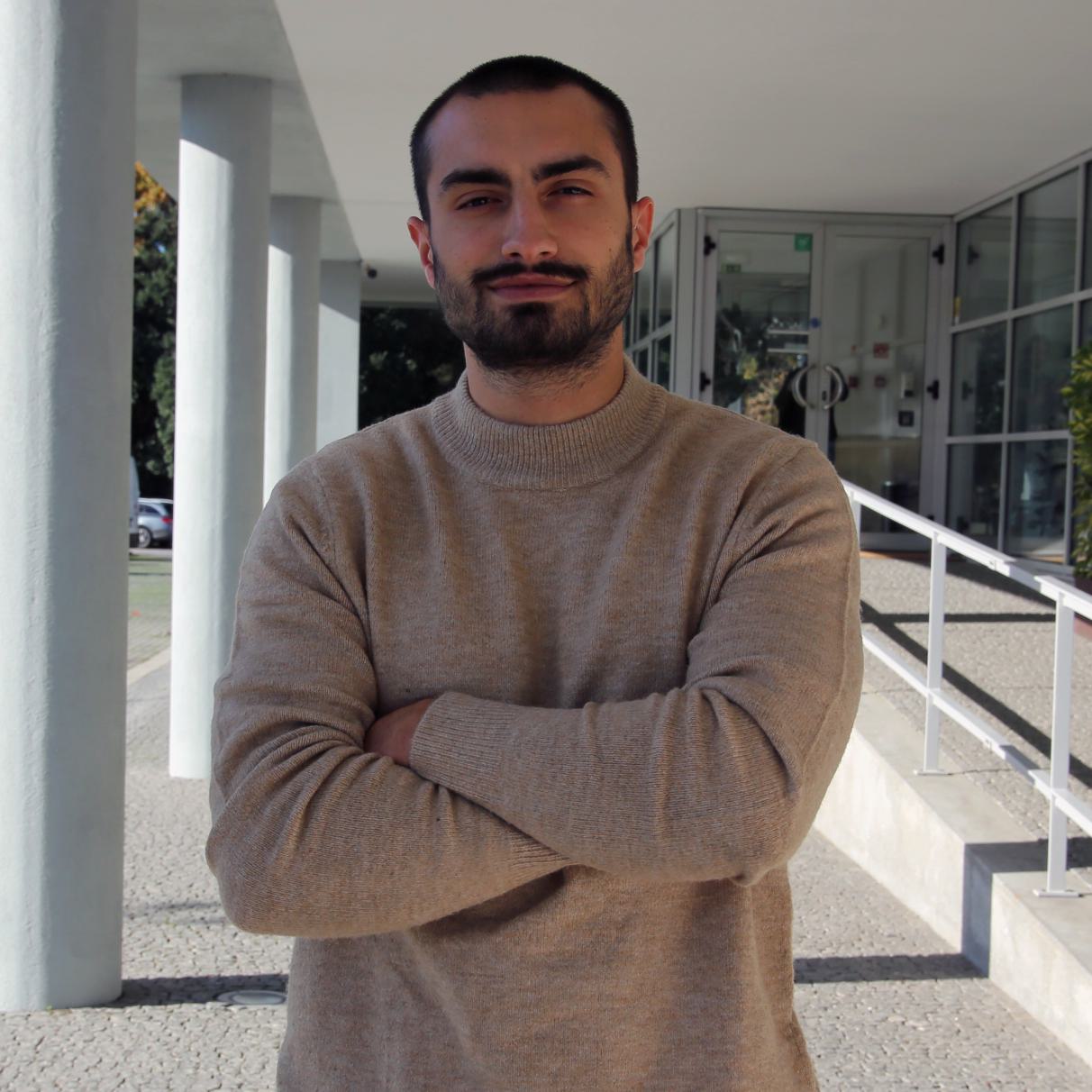
Francisco Silva
INESC TEC & FCUP
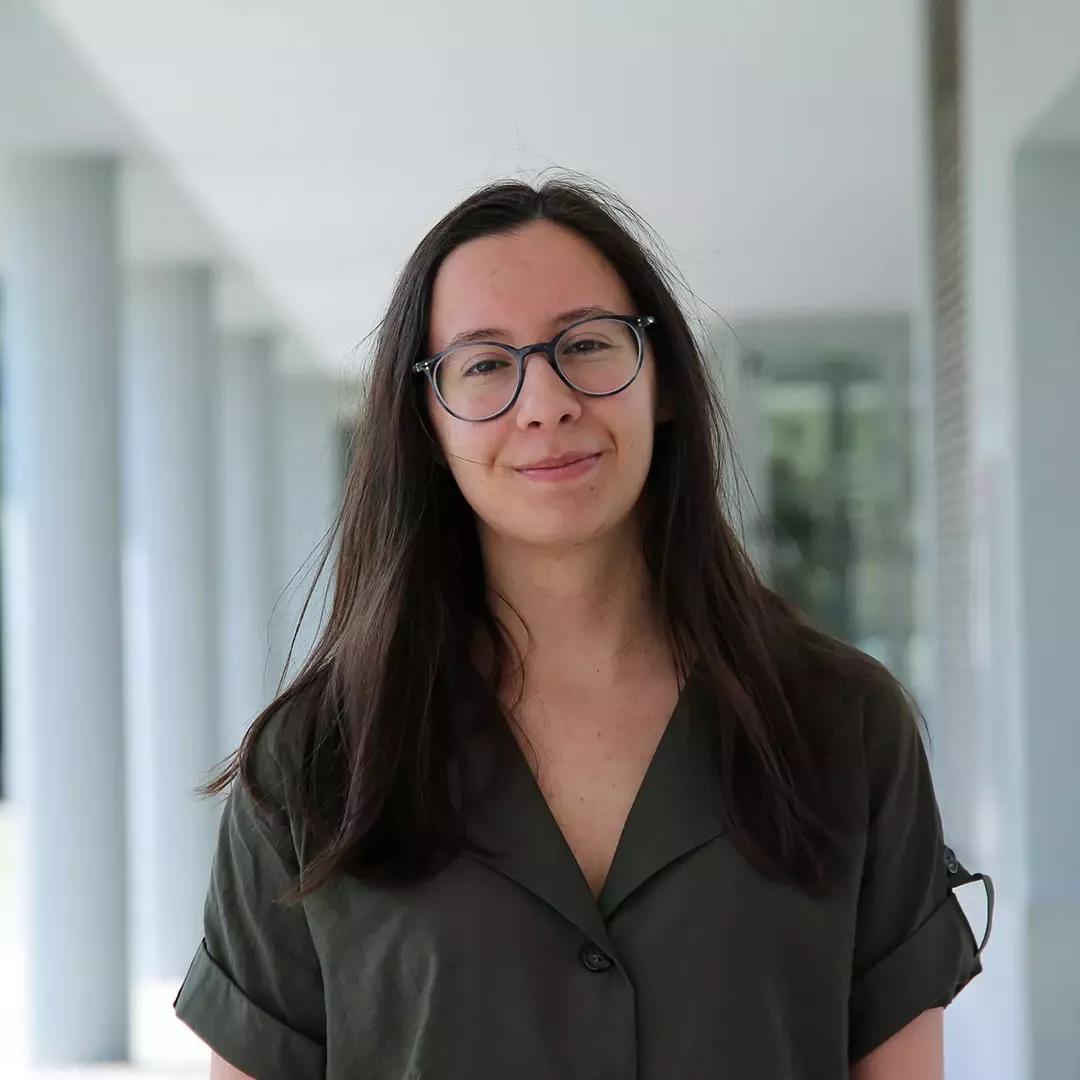
Helena Montenegro
INESC TEC & FEUP
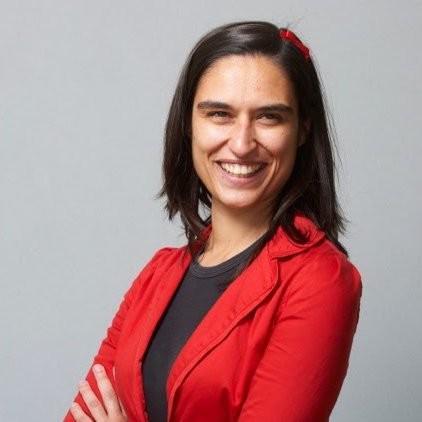
Inês Domingues
ISEC & CI-IPOP
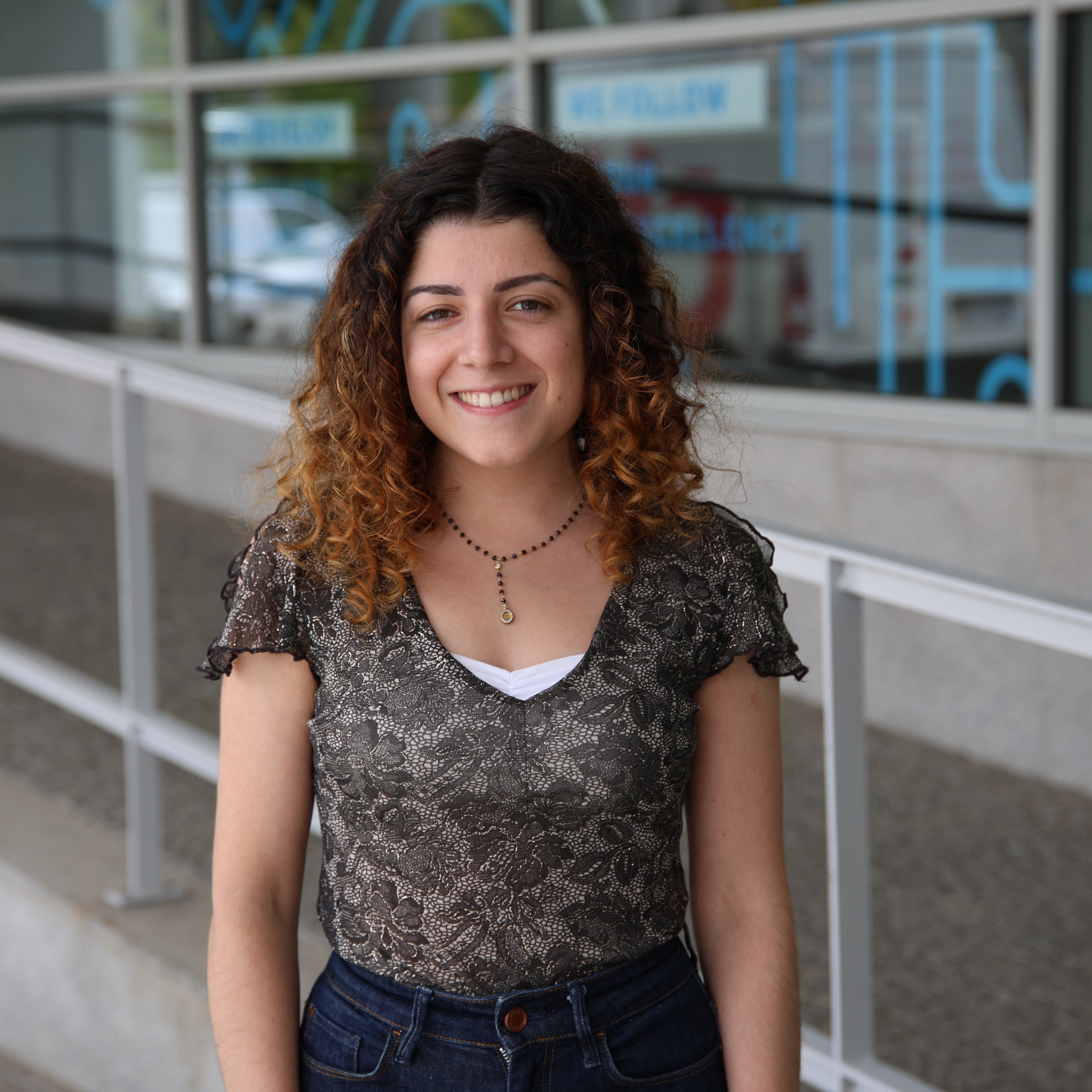
Joana Sousa
INESC TEC & FEUP
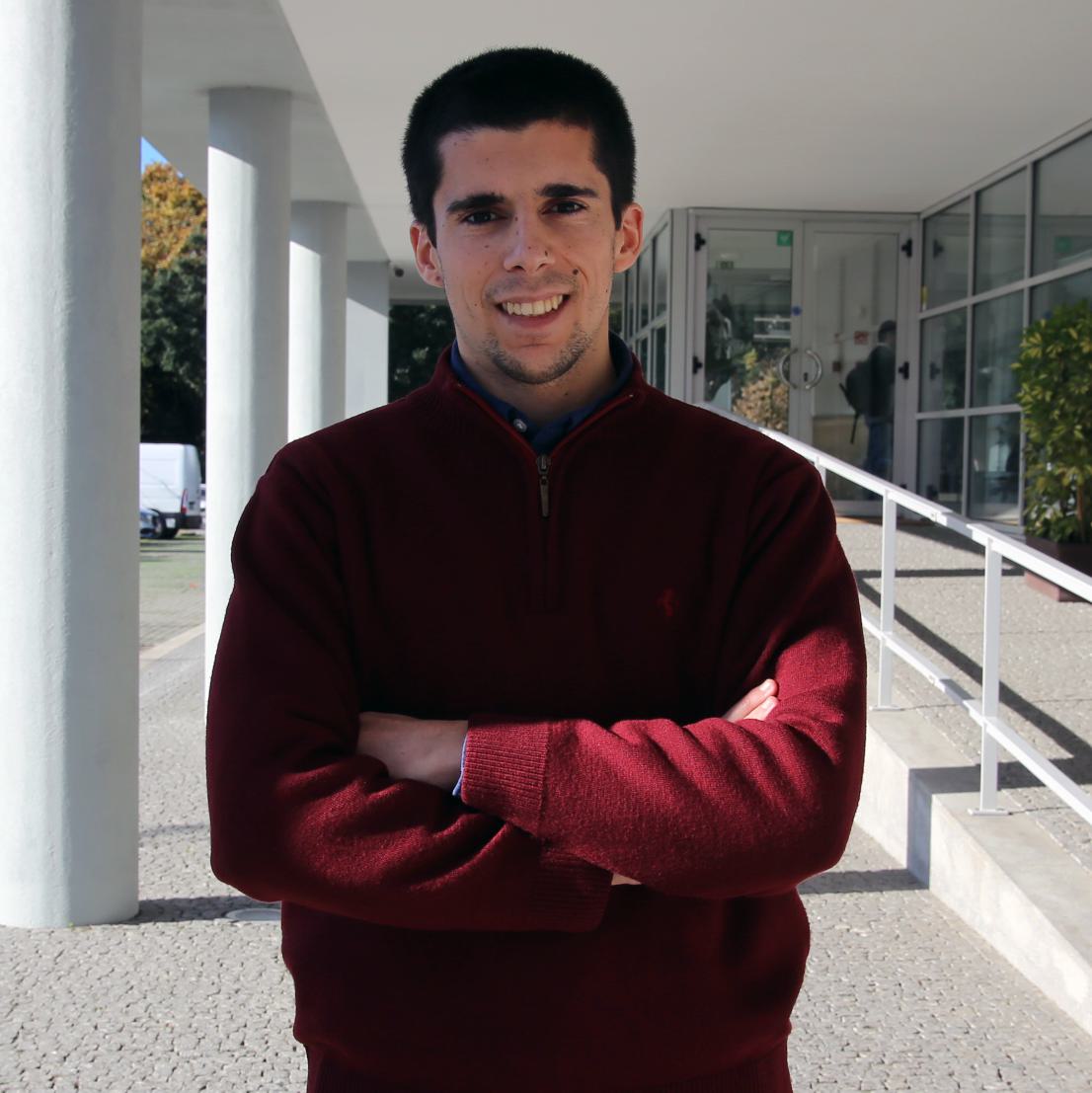
João Nunes
INESC TEC & FEUP
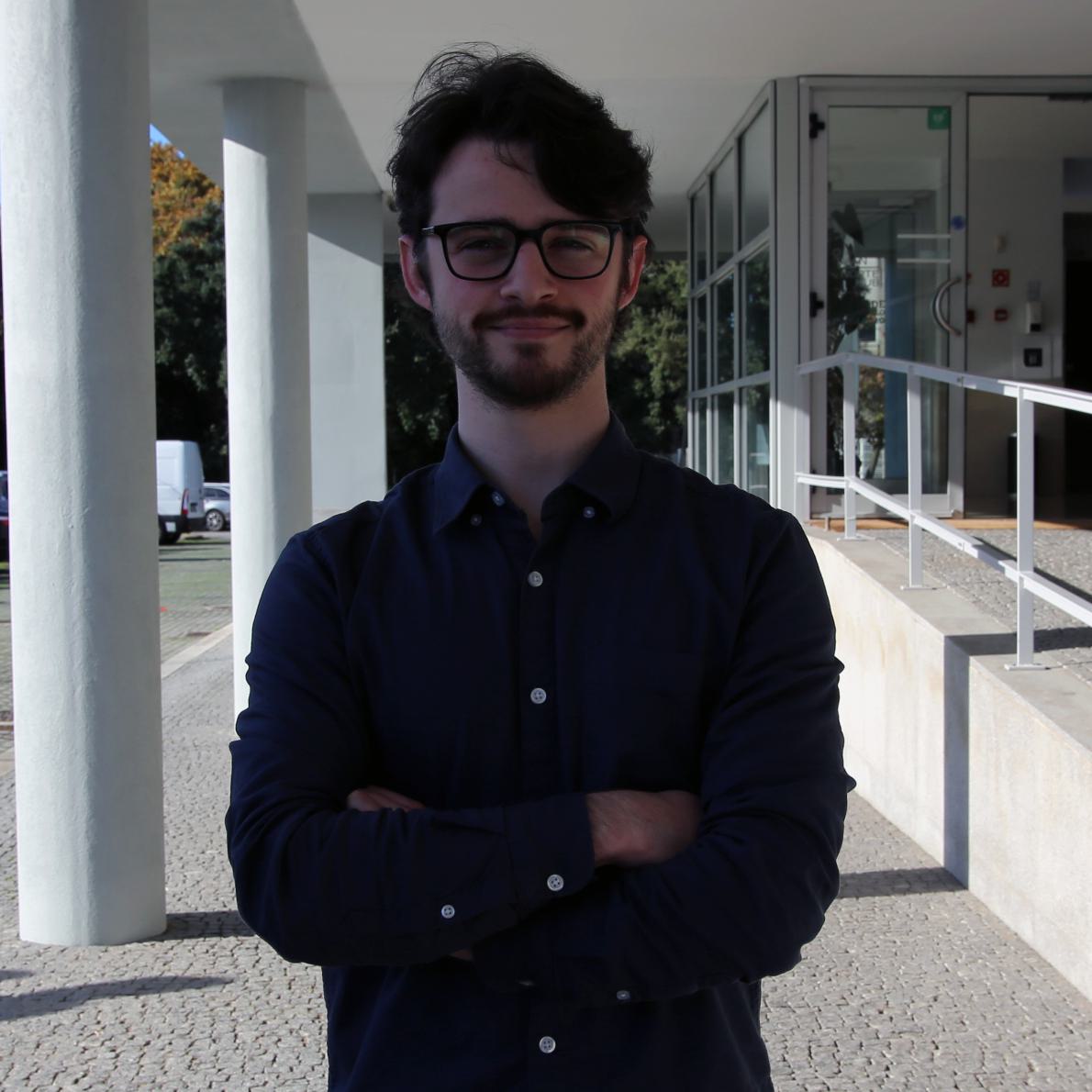
Luís Fernandes
INESC TEC & FEUP
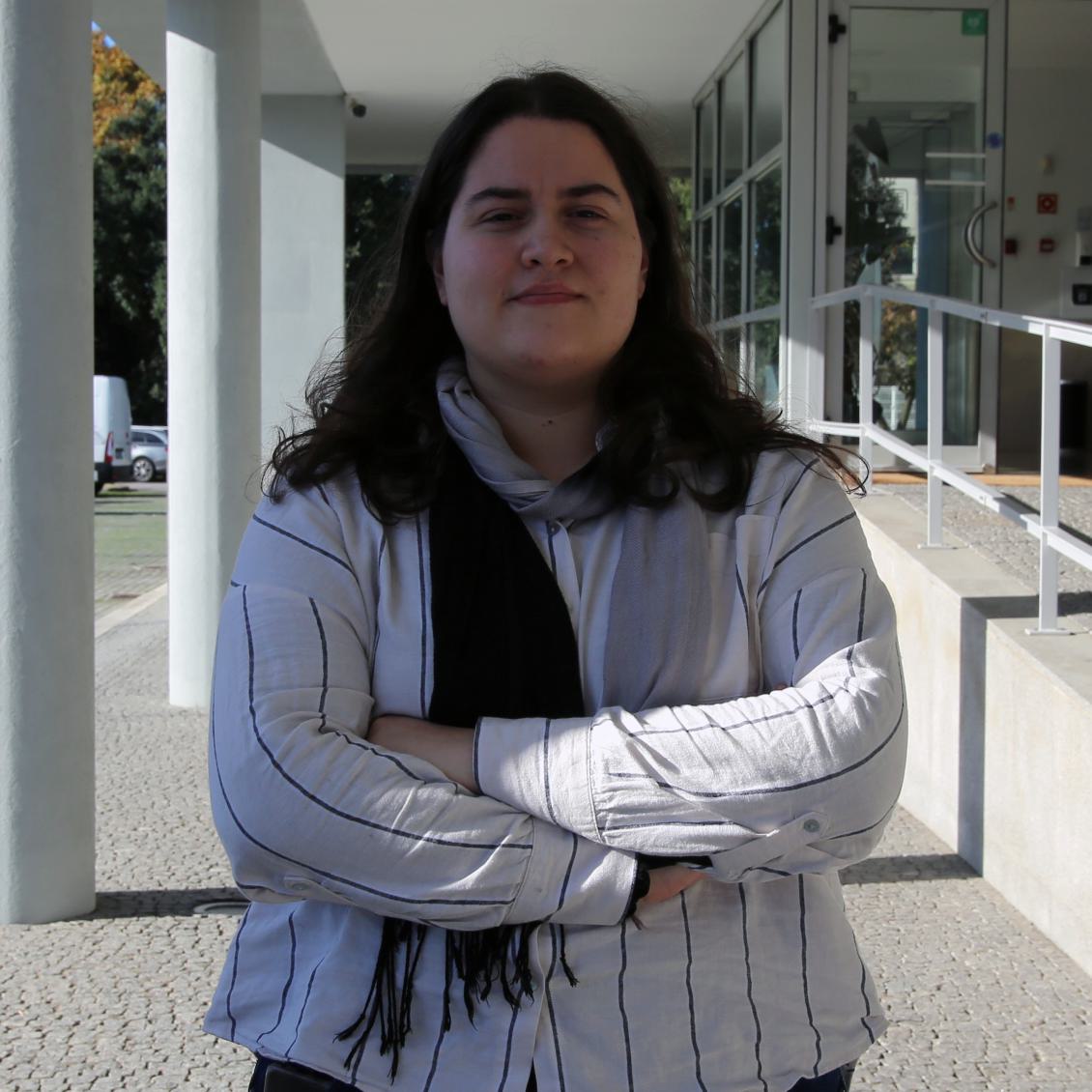
Margarida Gouveia
INESC TEC & FEUP
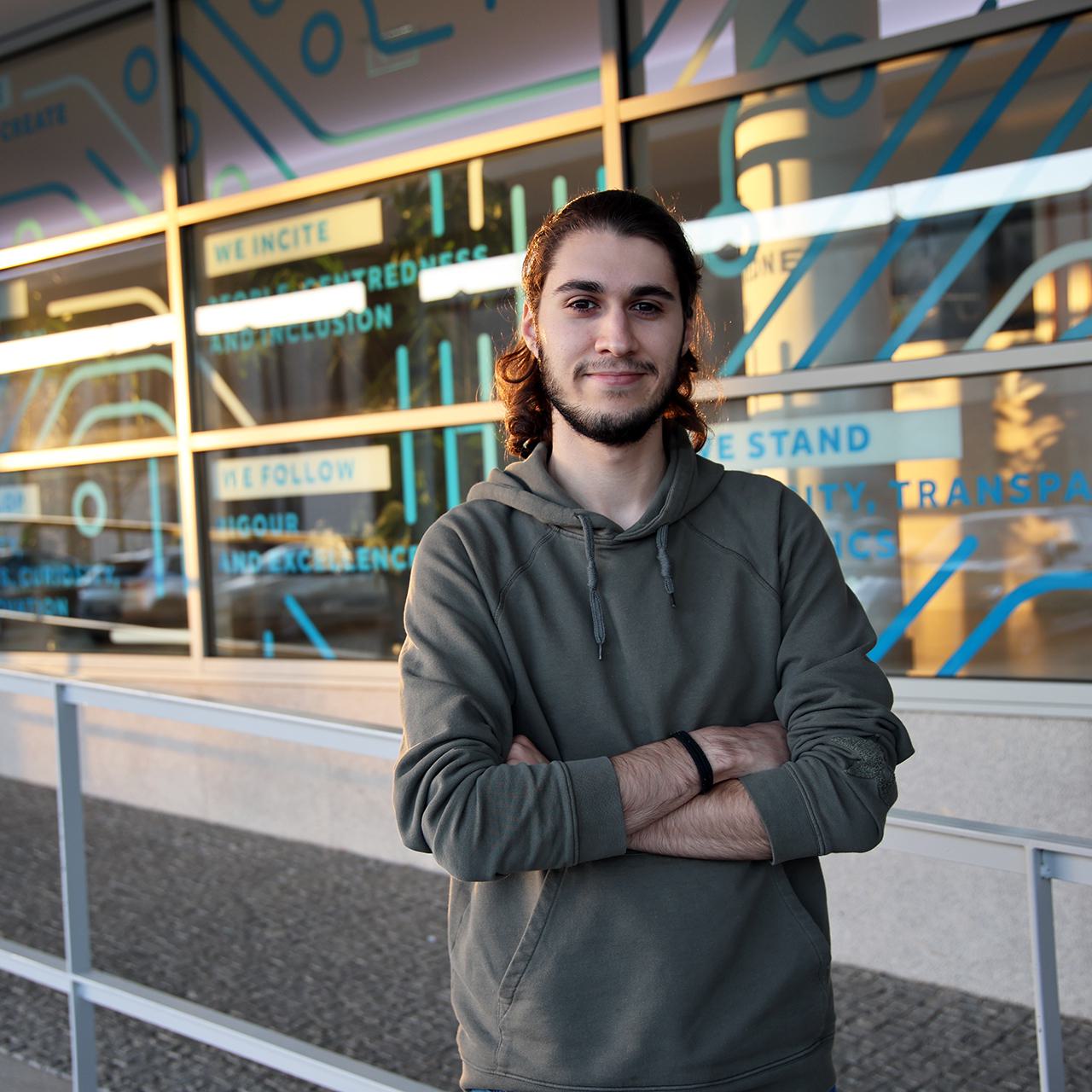
Pedro Sousa
INESC TEC
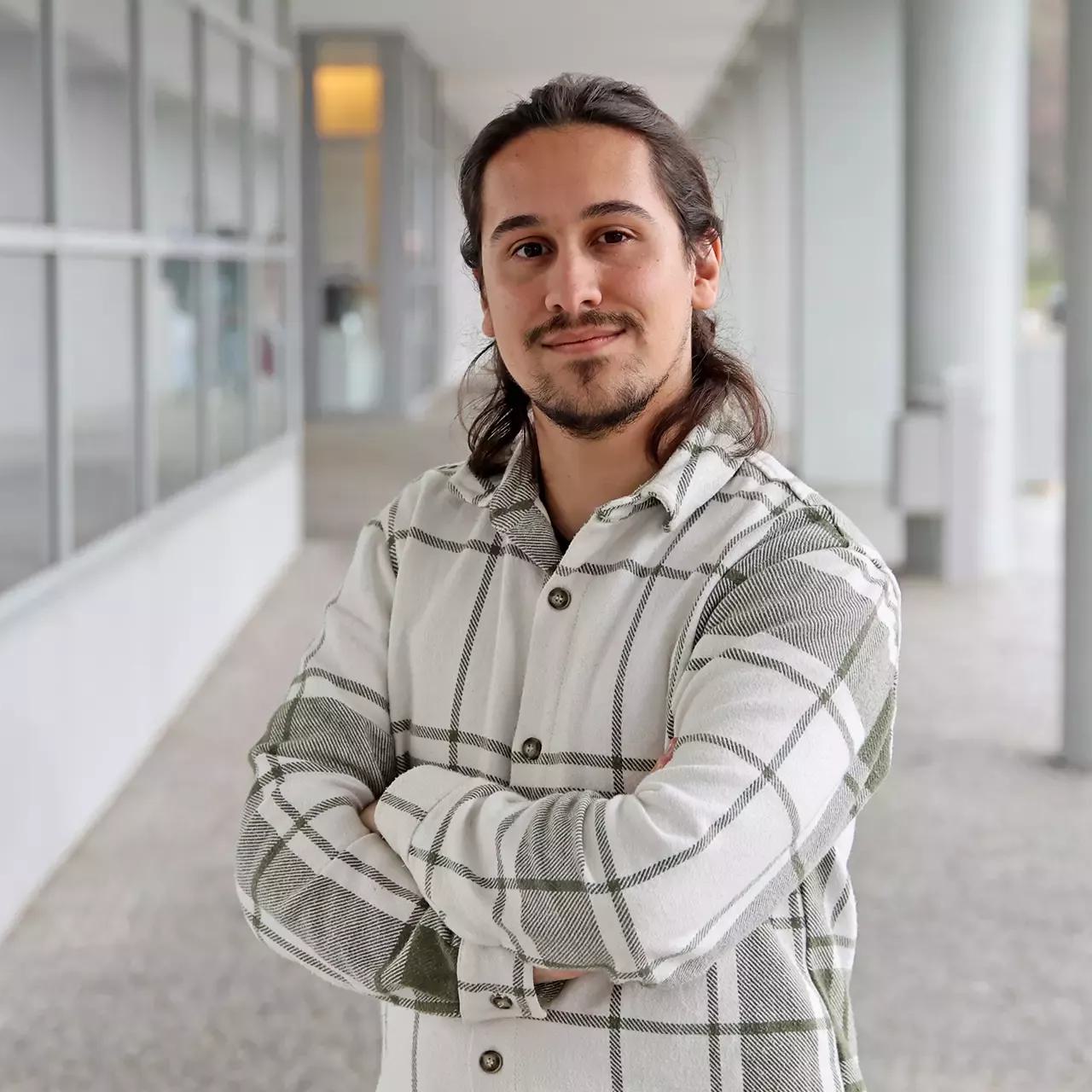
Rafael Mamede
INESC TEC & FEUP
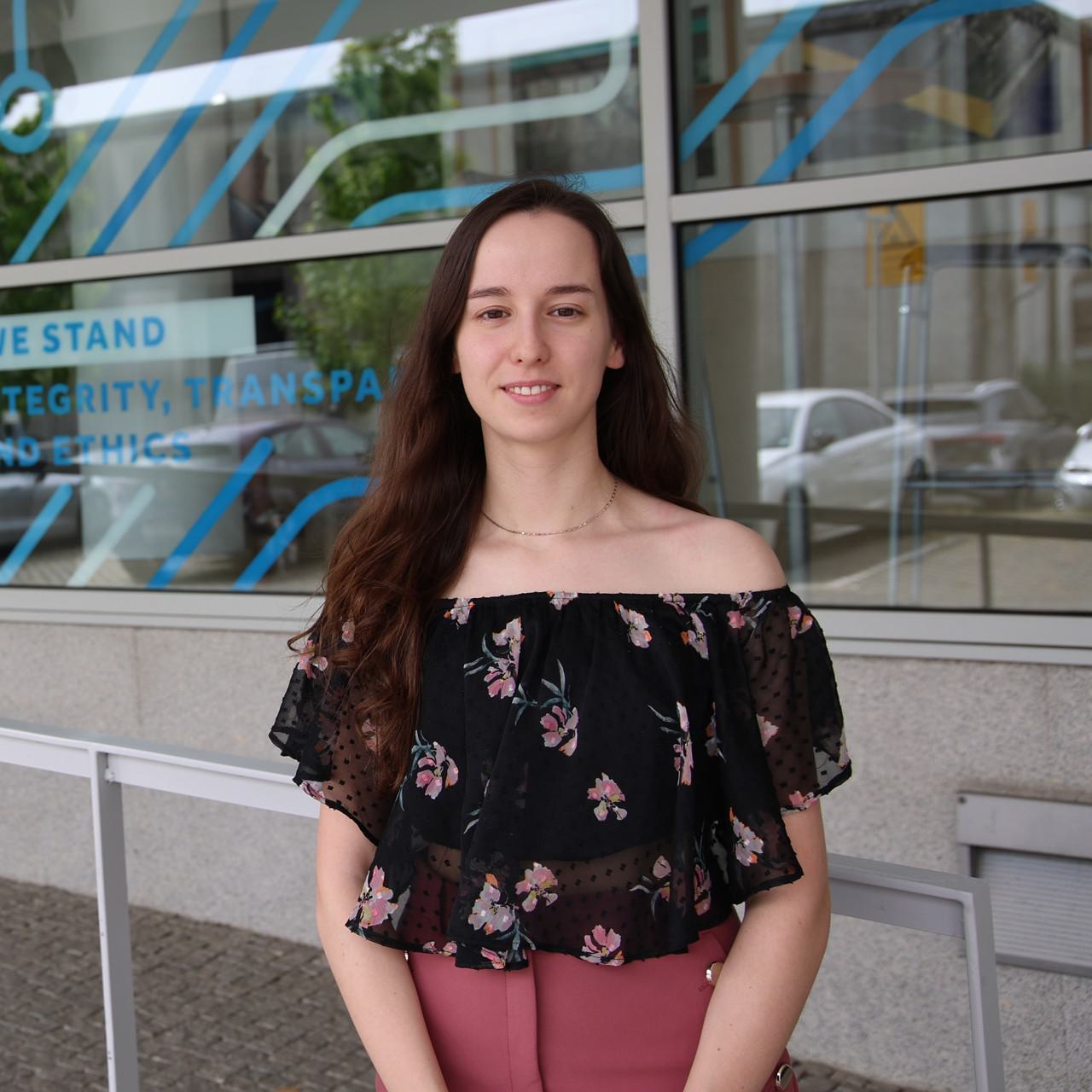
Vitória Cruz
INESC TEC
Advisory Team
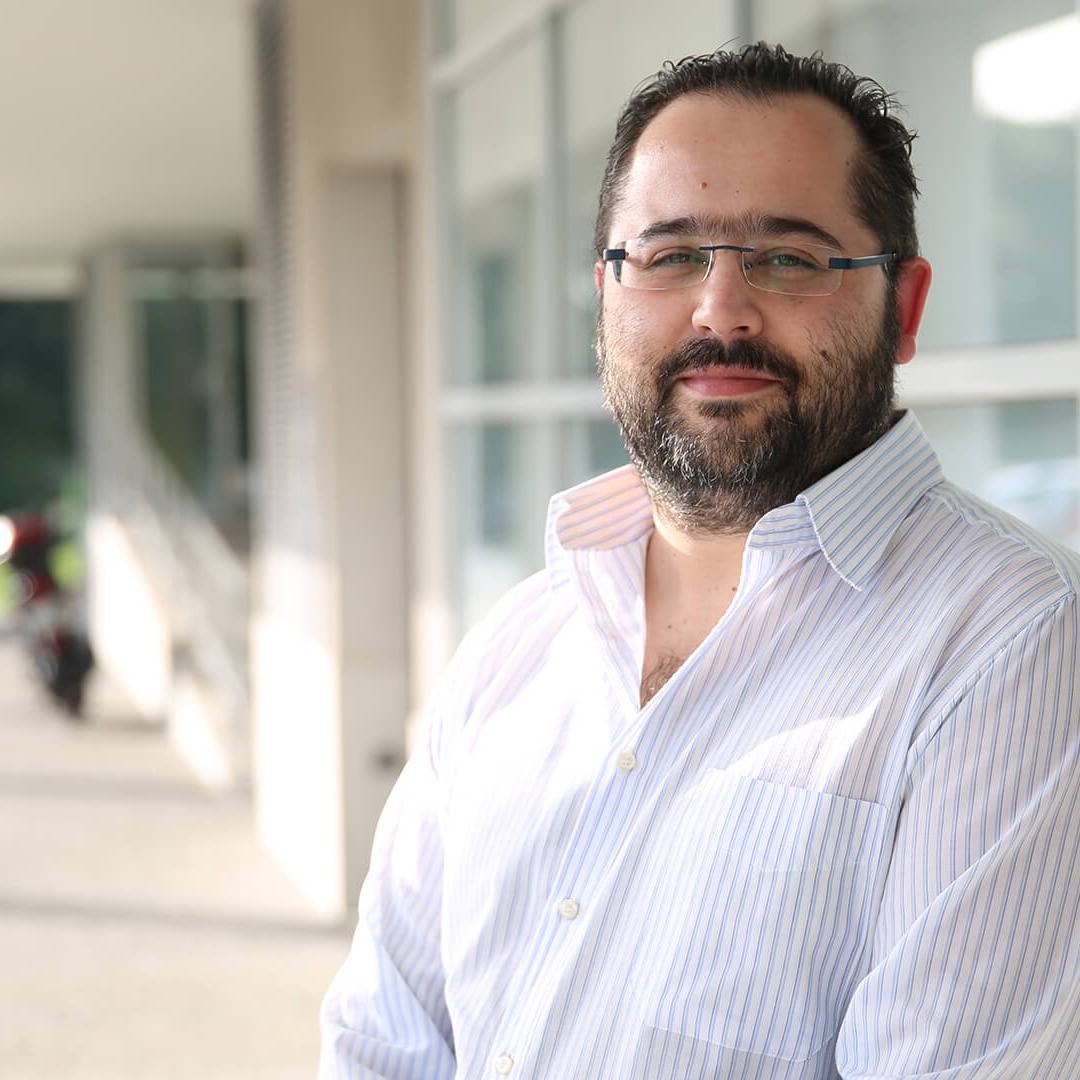
Hélder P. Oliveira
INESC TEC & FCUP
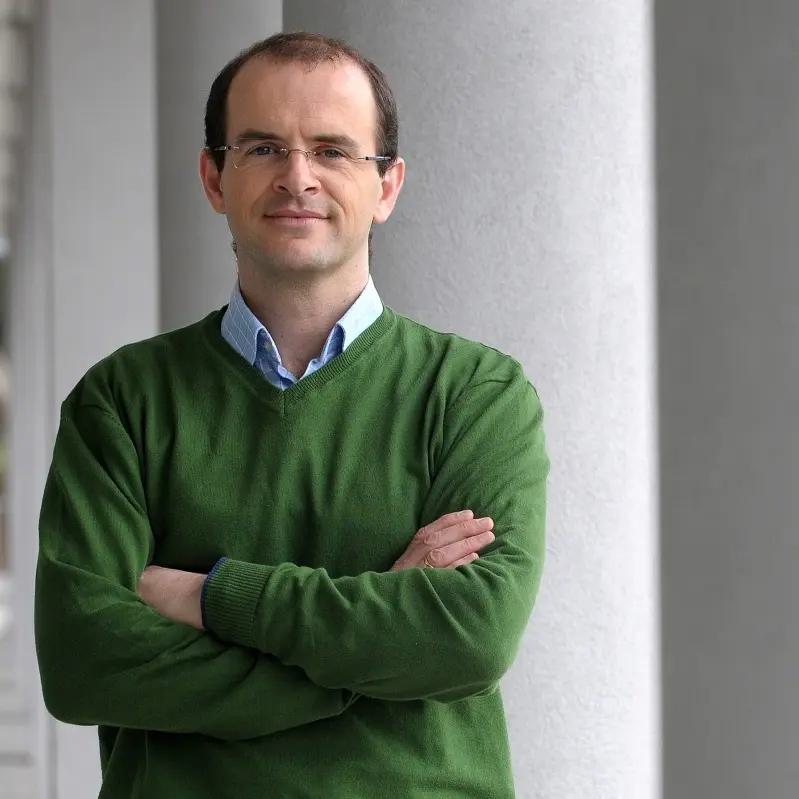
Jaime S. Cardoso
FEUP & INESC TEC

Kelwin Fernandes
NILG.AI
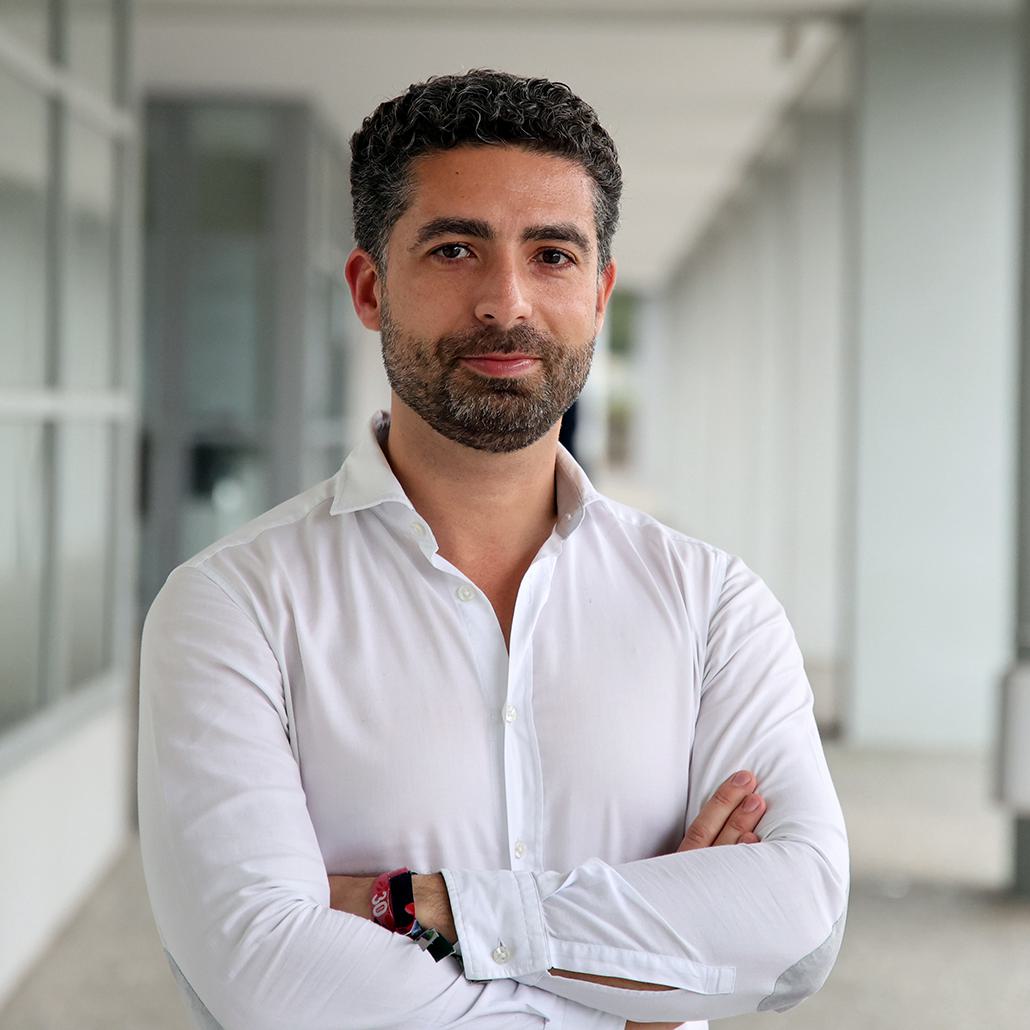
Luís Teixeira
FEUP & INESC TEC
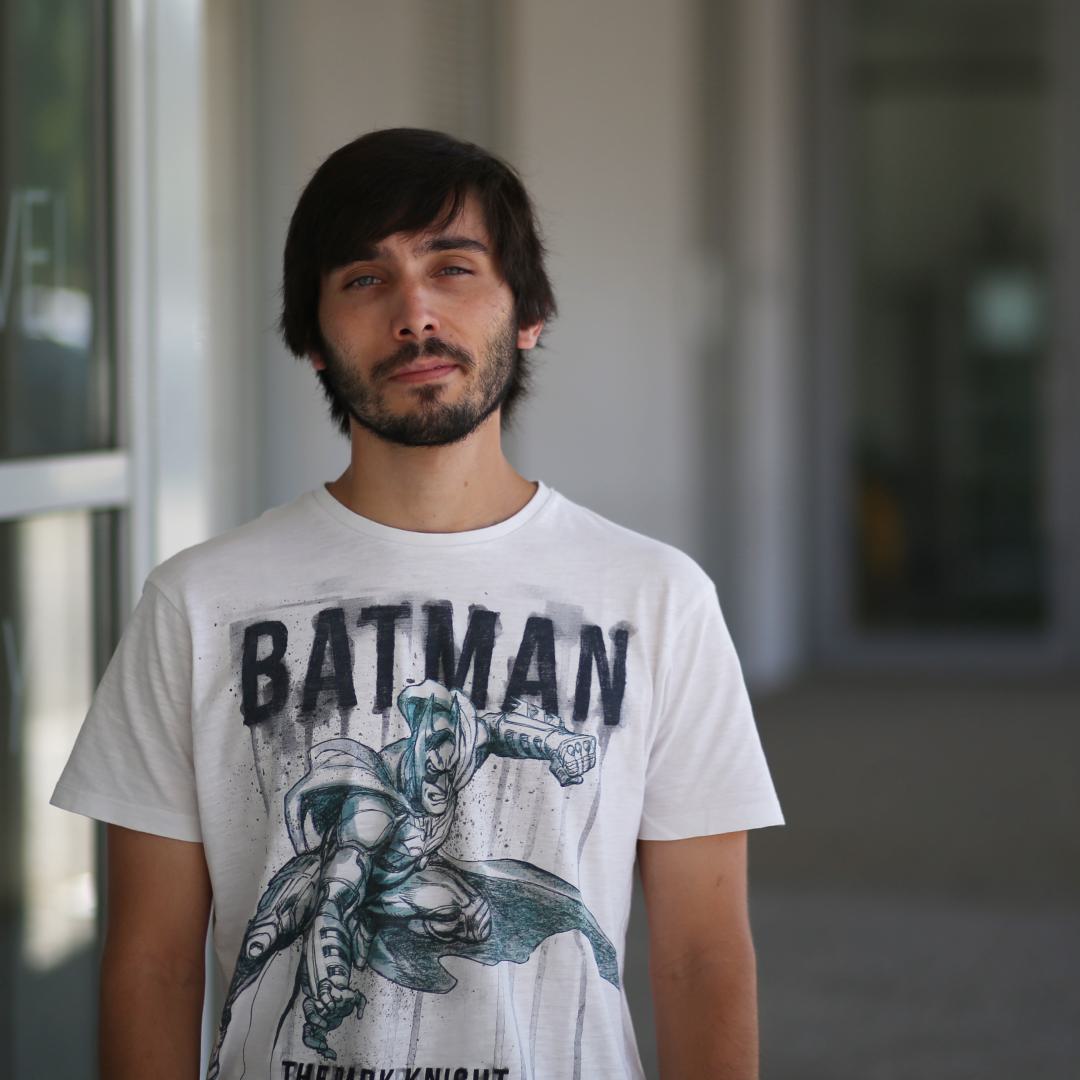
Tiago Gonçalves
INESC TEC & FEUP
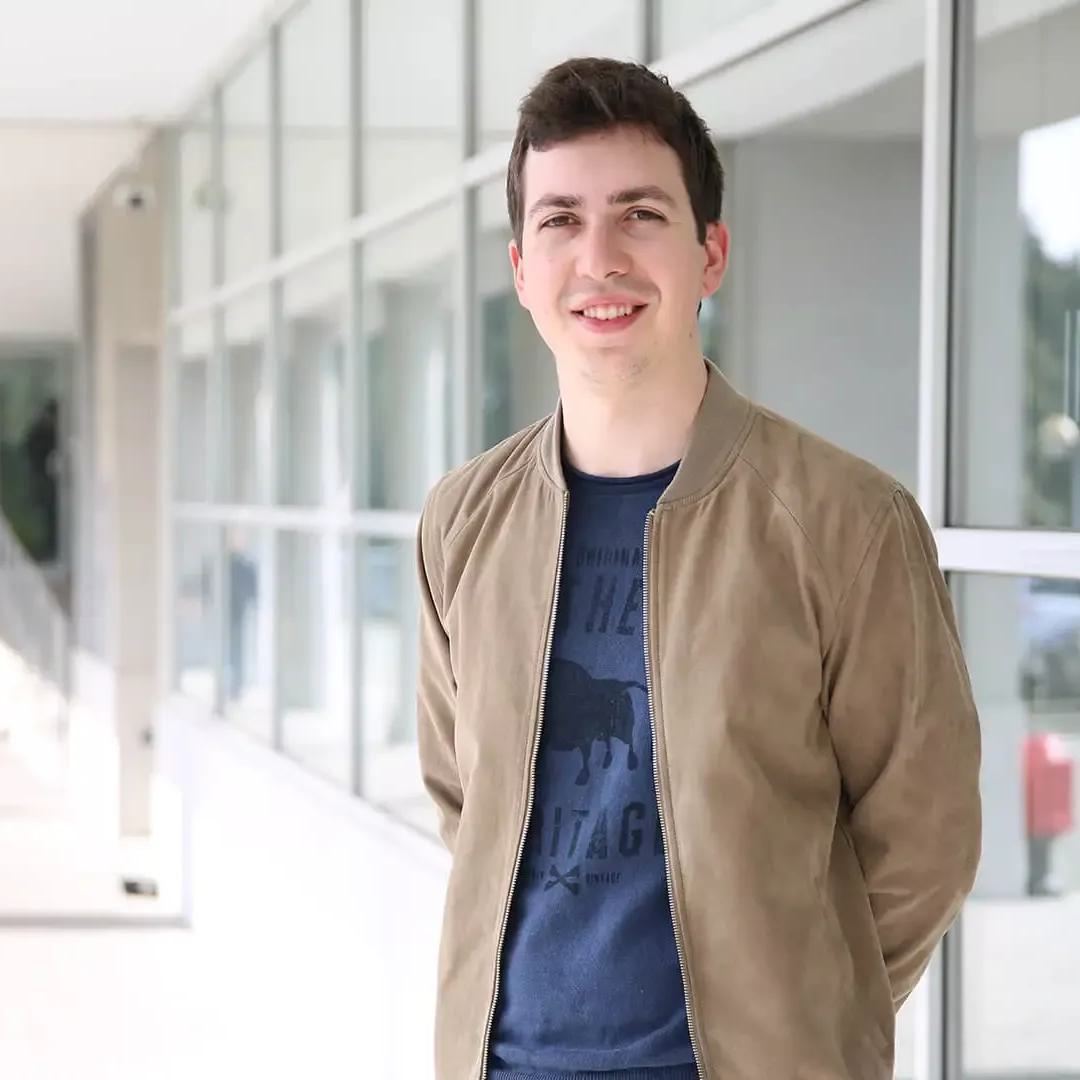
Ricardo Cruz
INESC TEC & FEUP
Partners
Sponsors
This school is co-financed by Component 5 - Capitalization and Business Innovation of core funding for Technology and Innovation Centres (CTI), integrated in the Resilience Dimension of the Recovery and Resilience Plan within the scope of the Recovery and Resilience Mechanism (MRR) of the European Union (EU), framed in the Next Generation EU, for the period 2021 - 2026.



